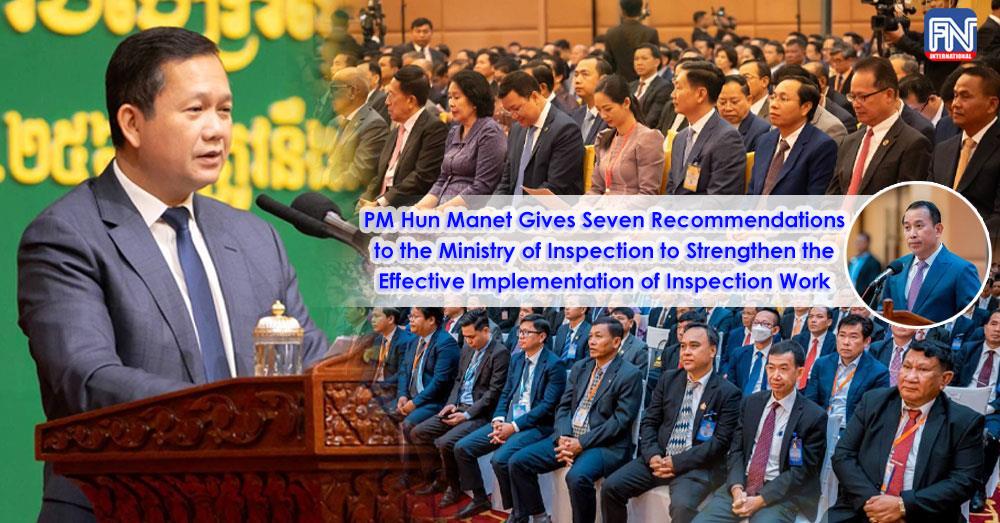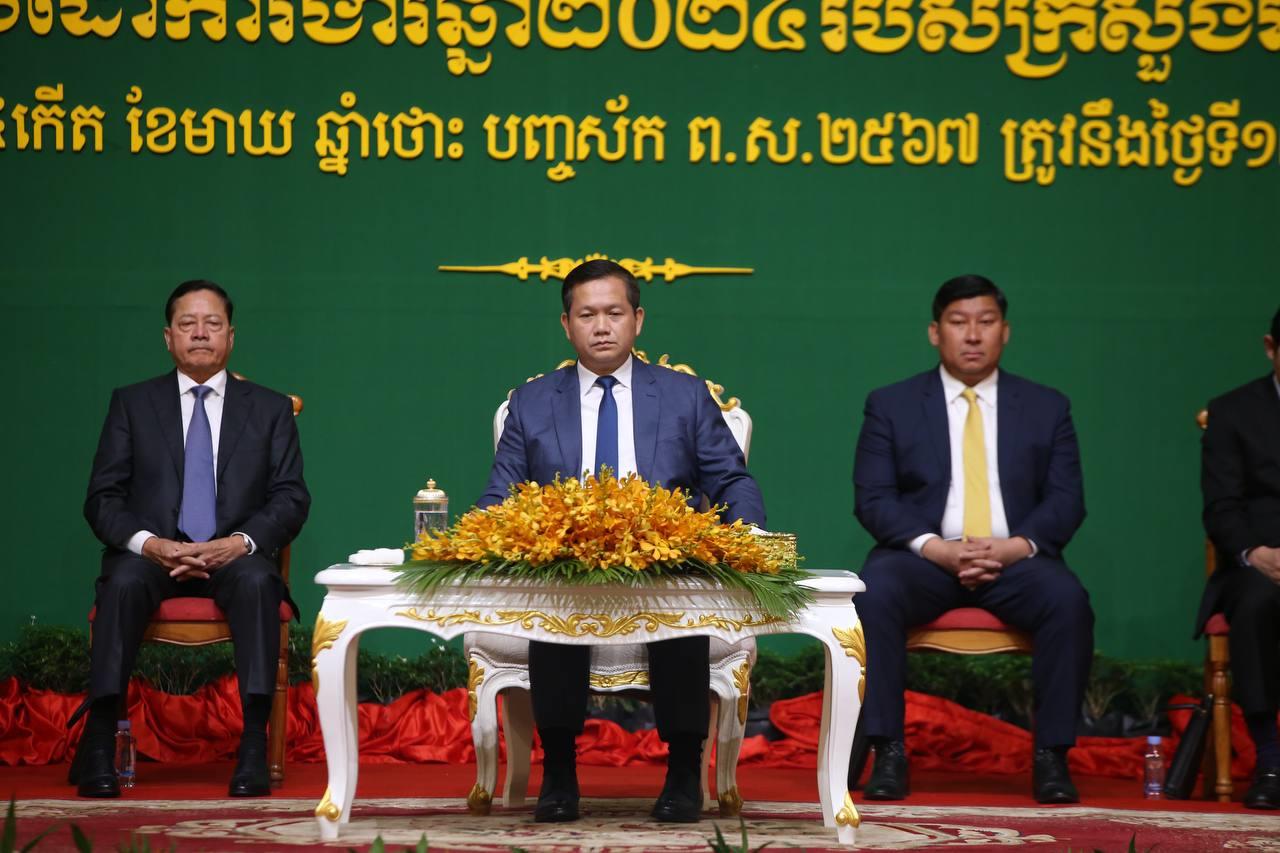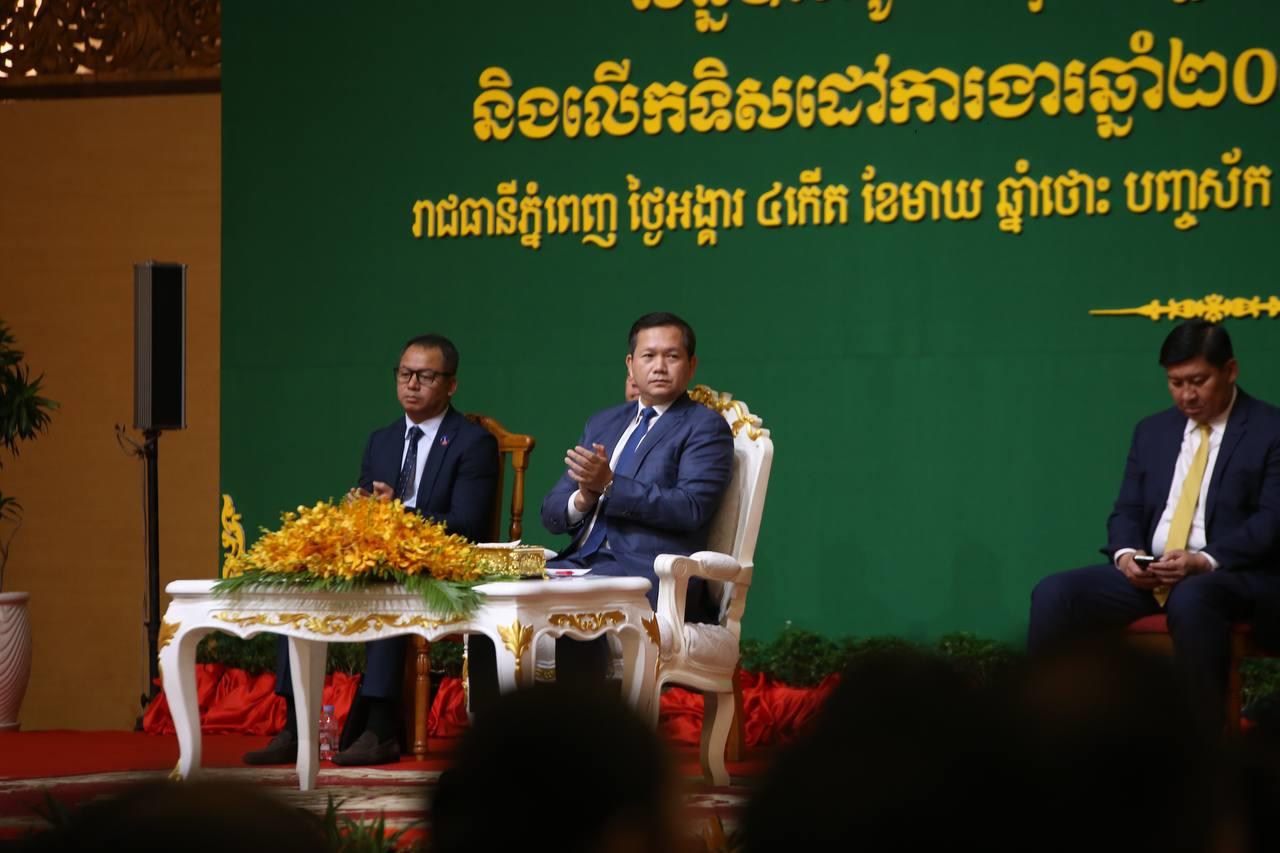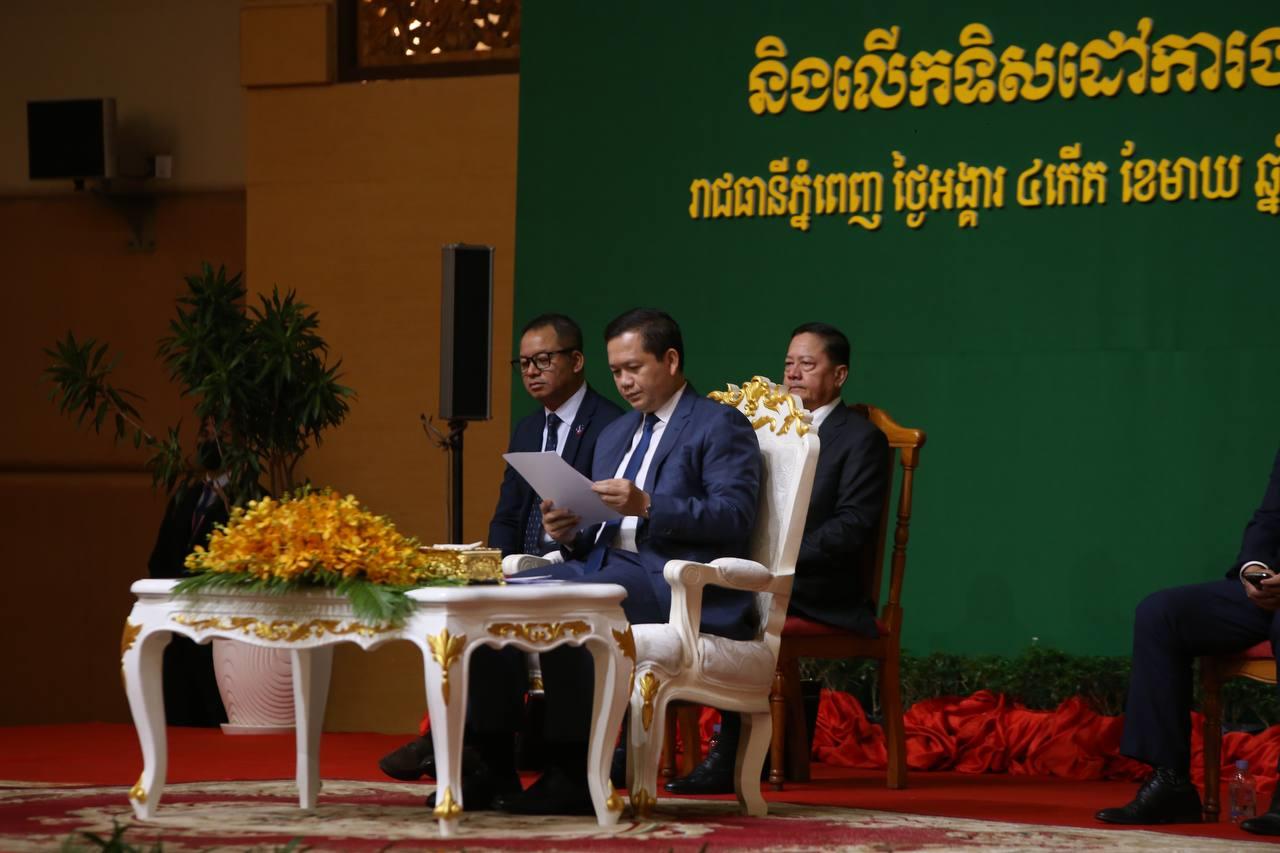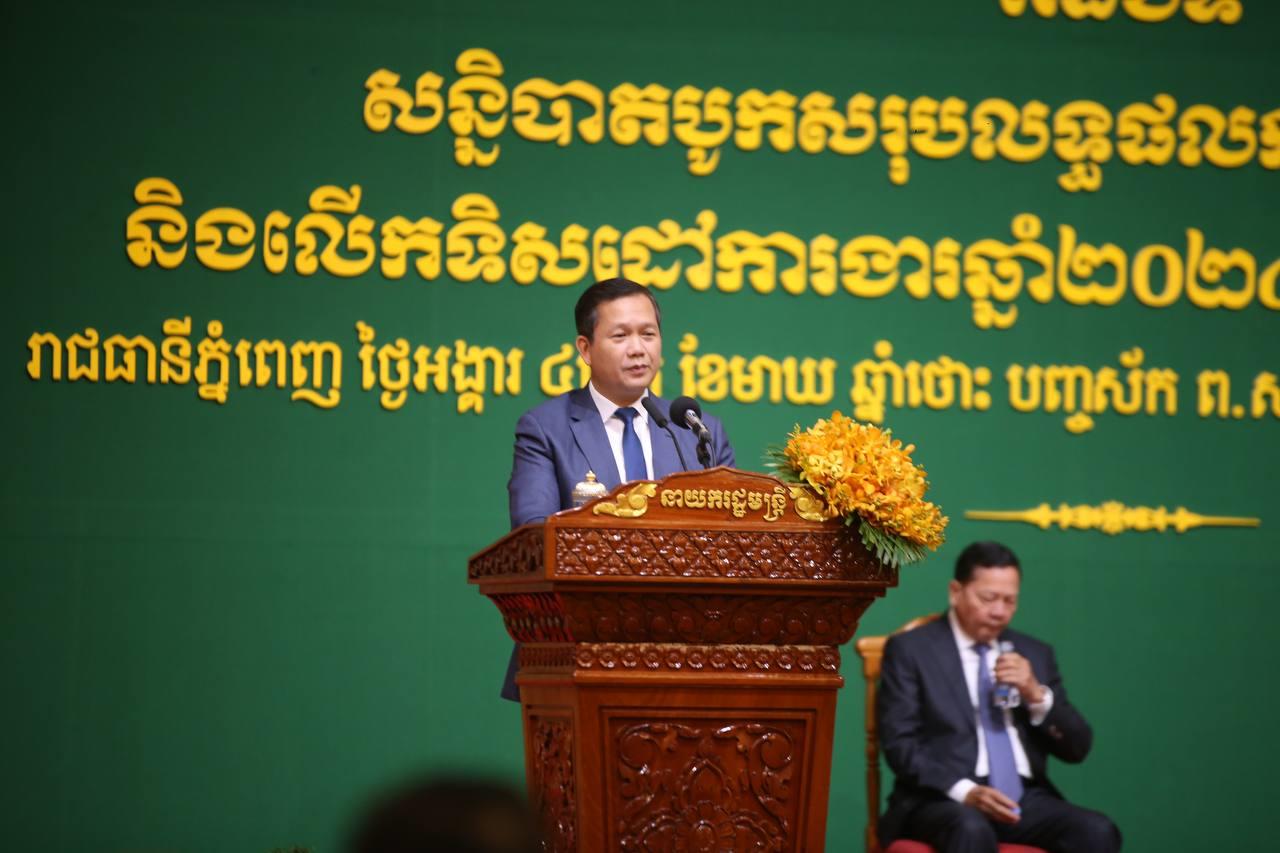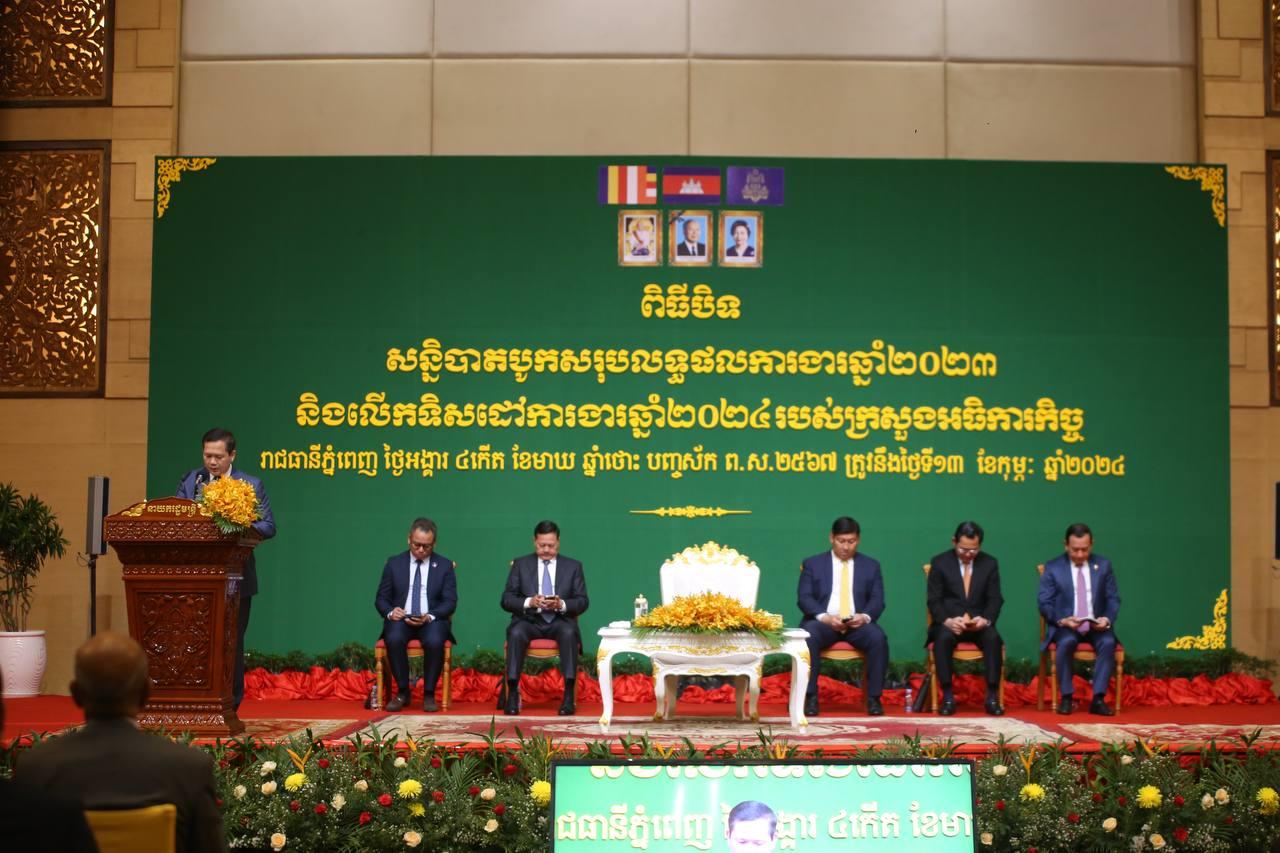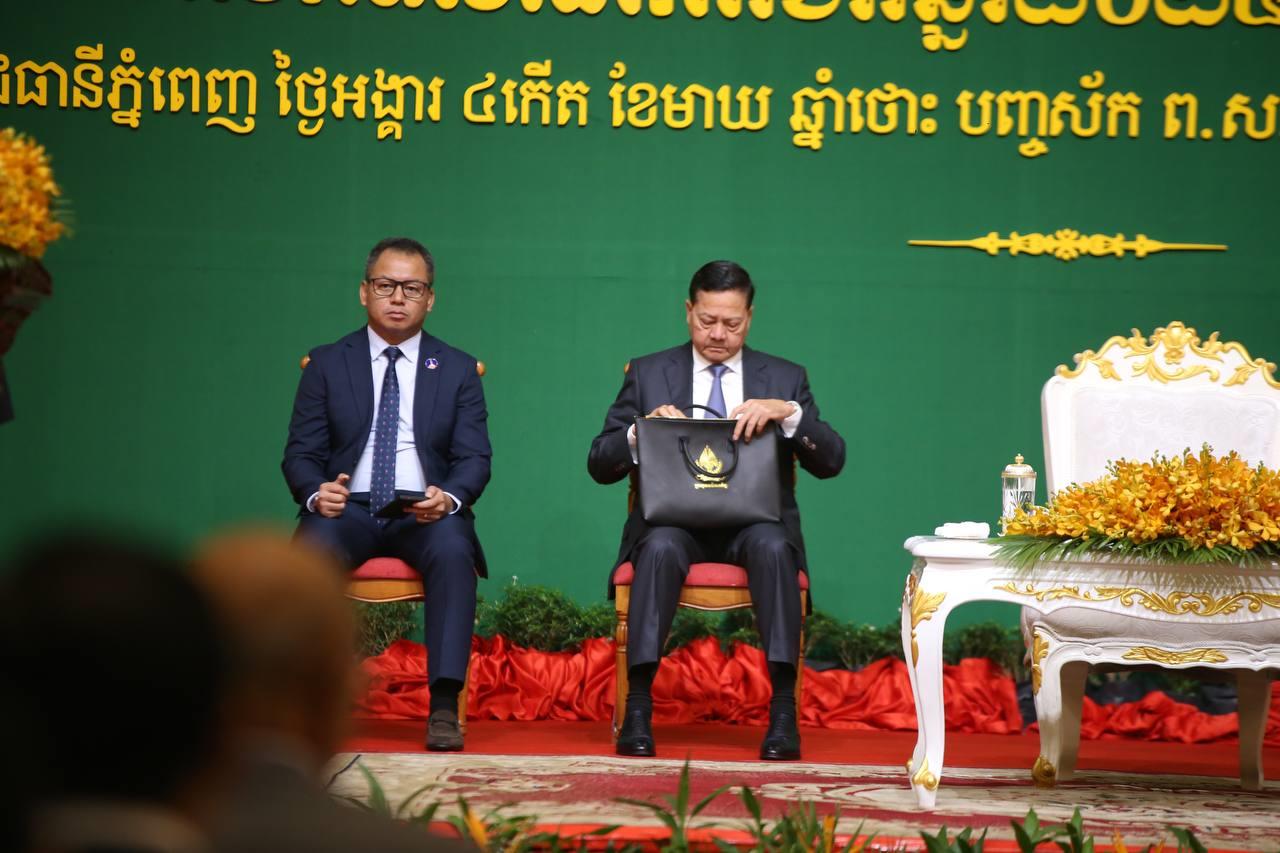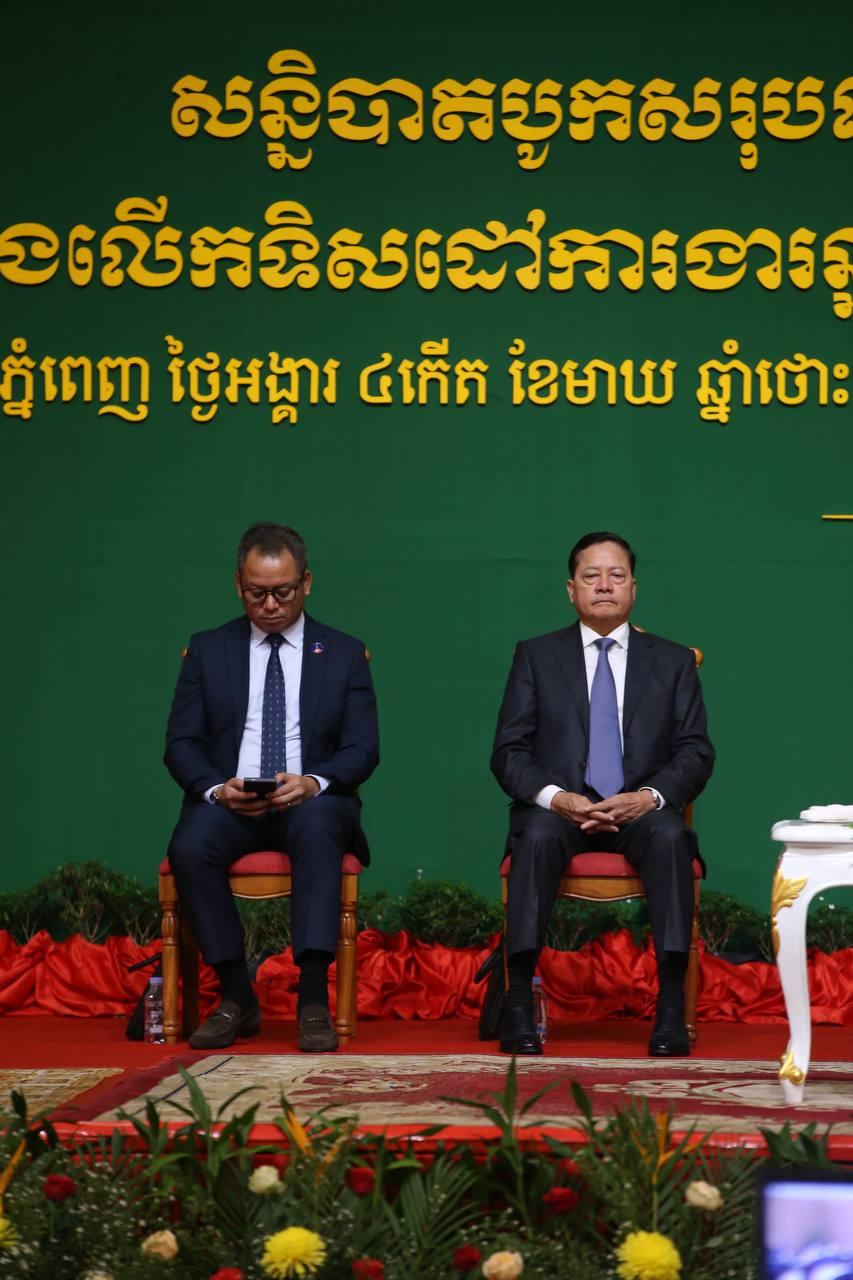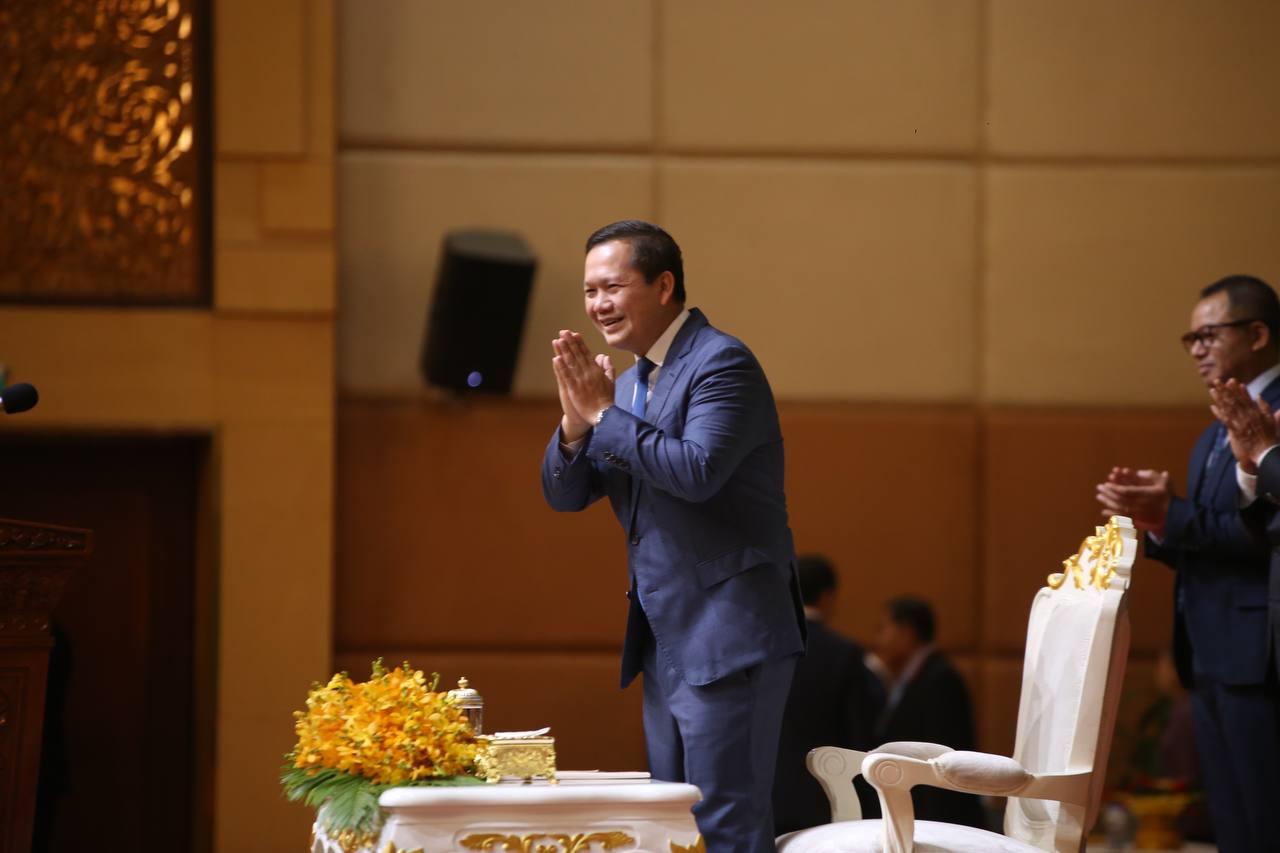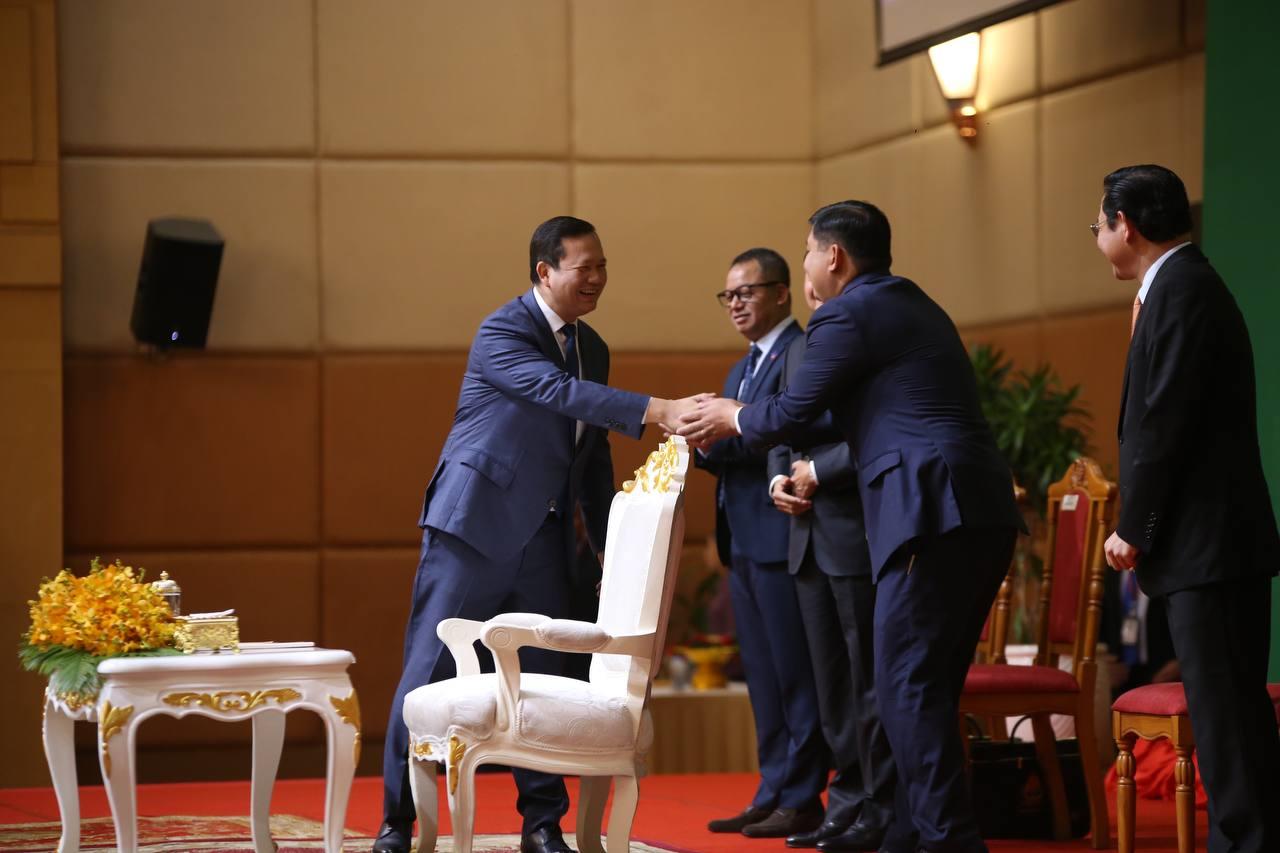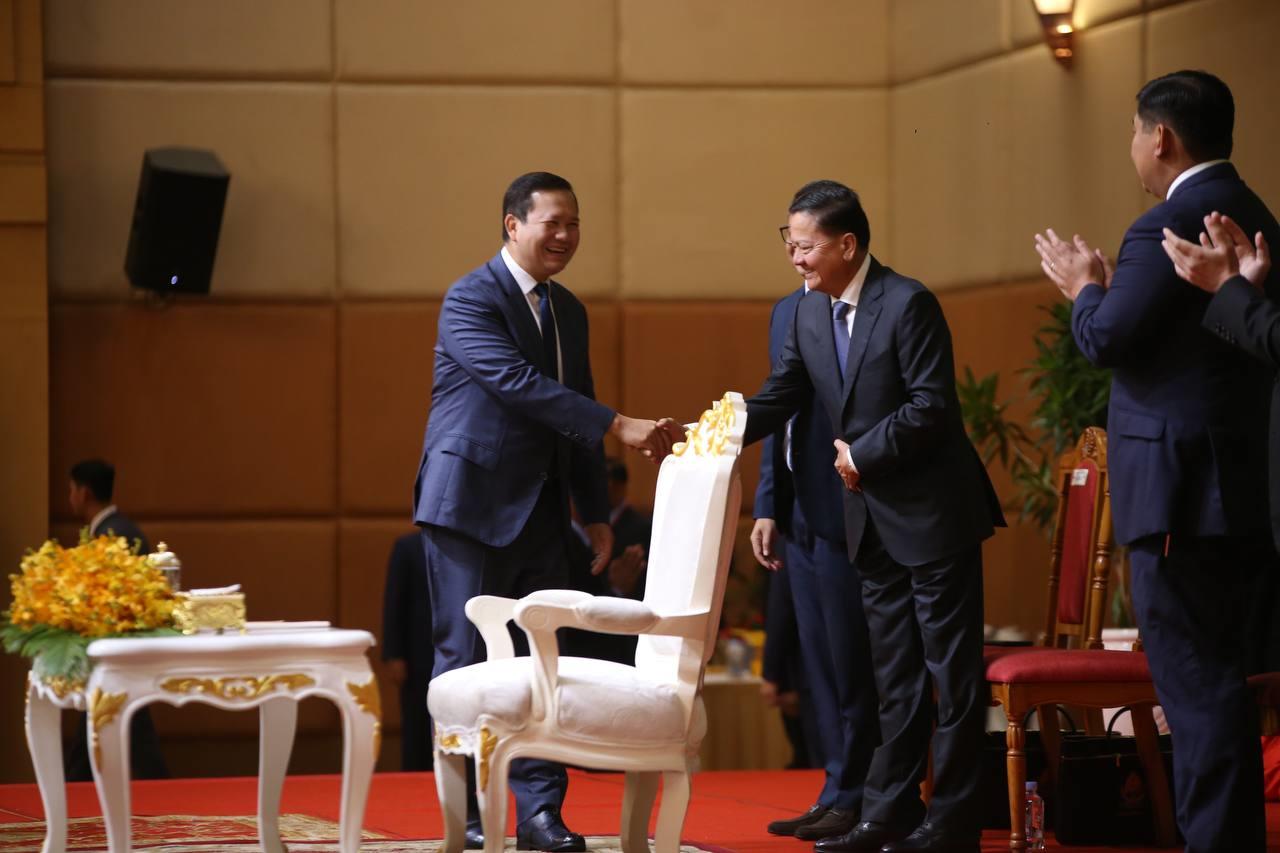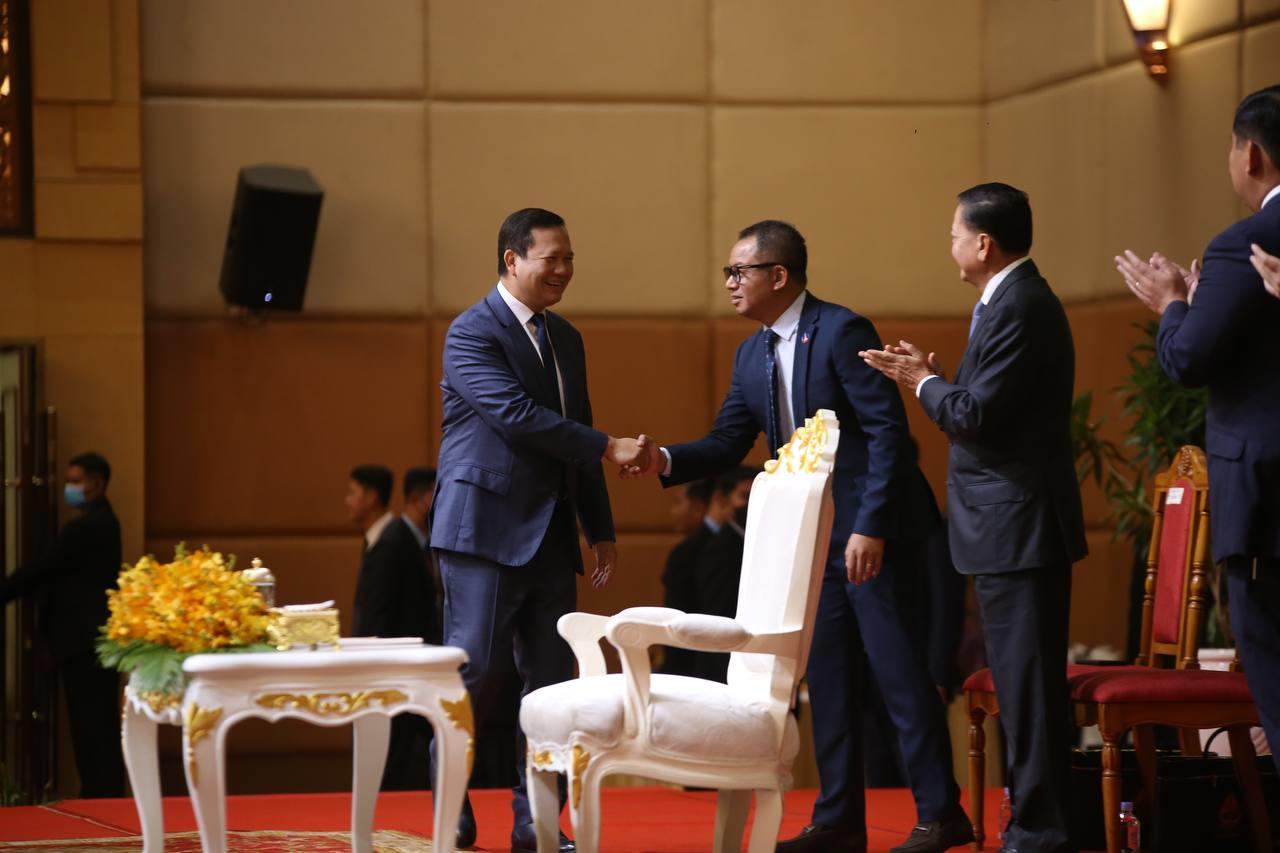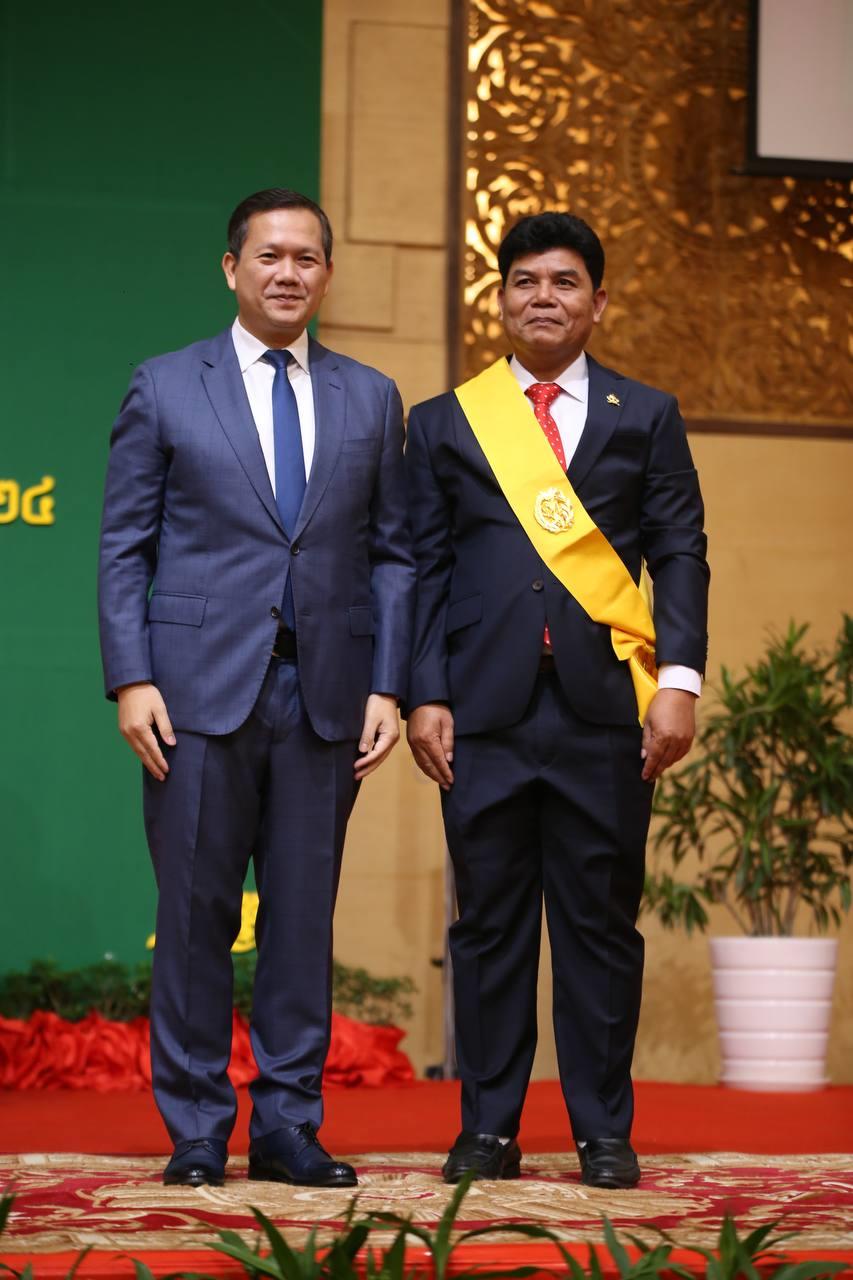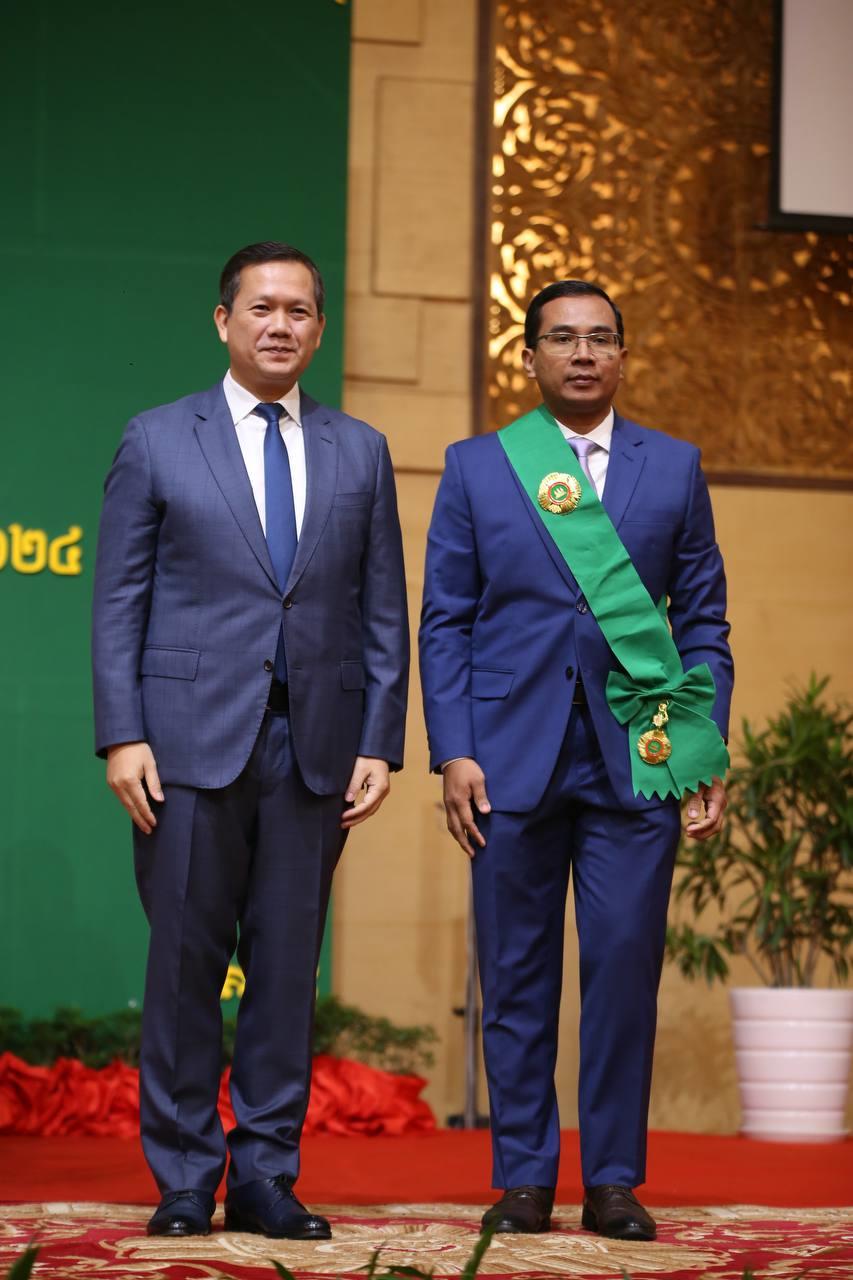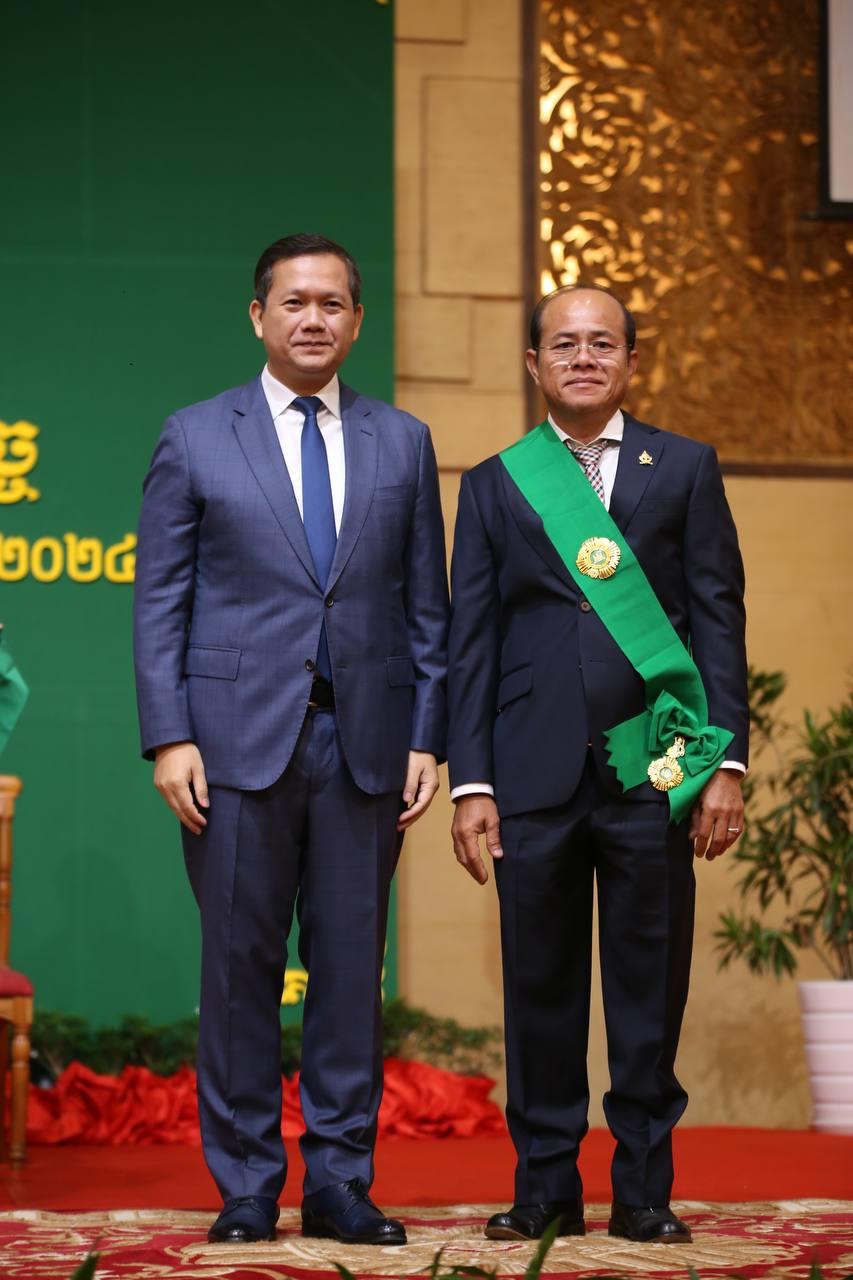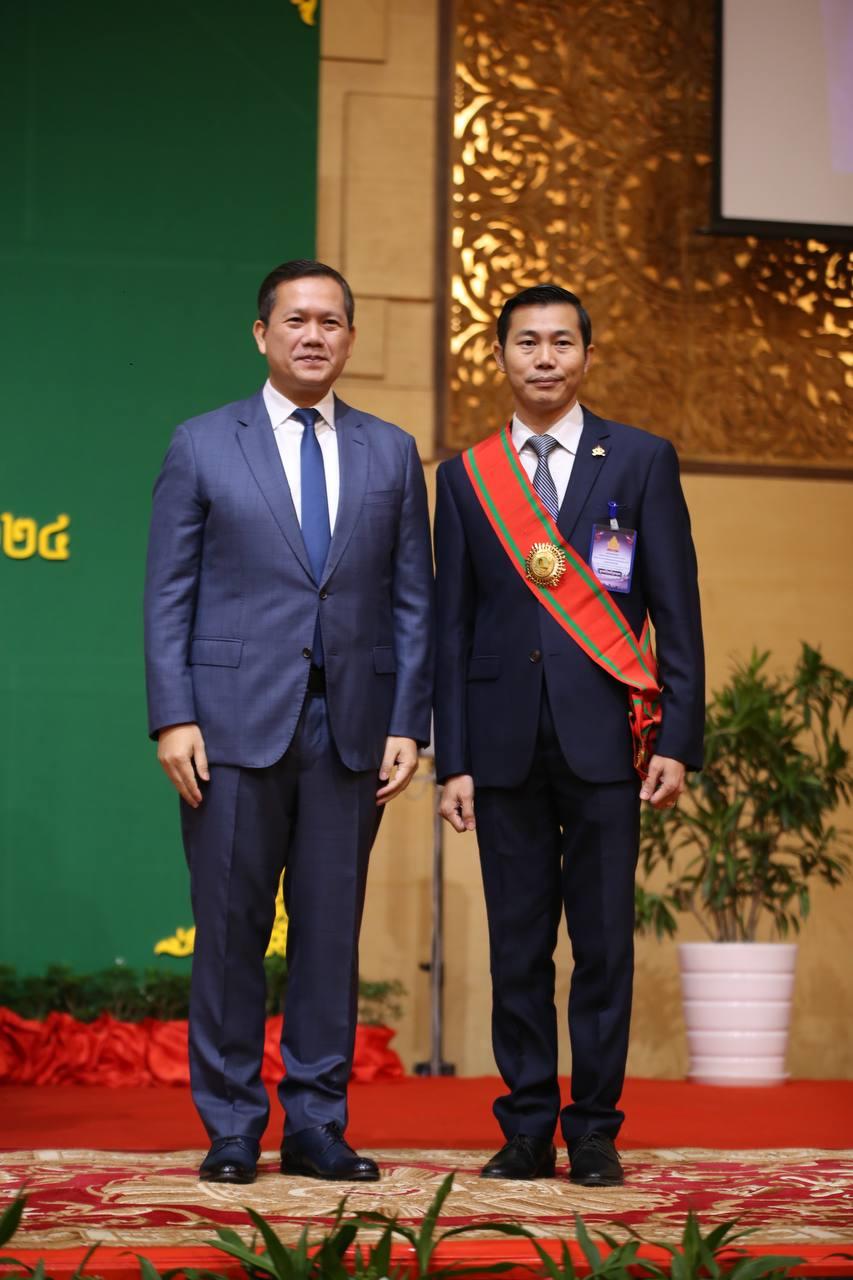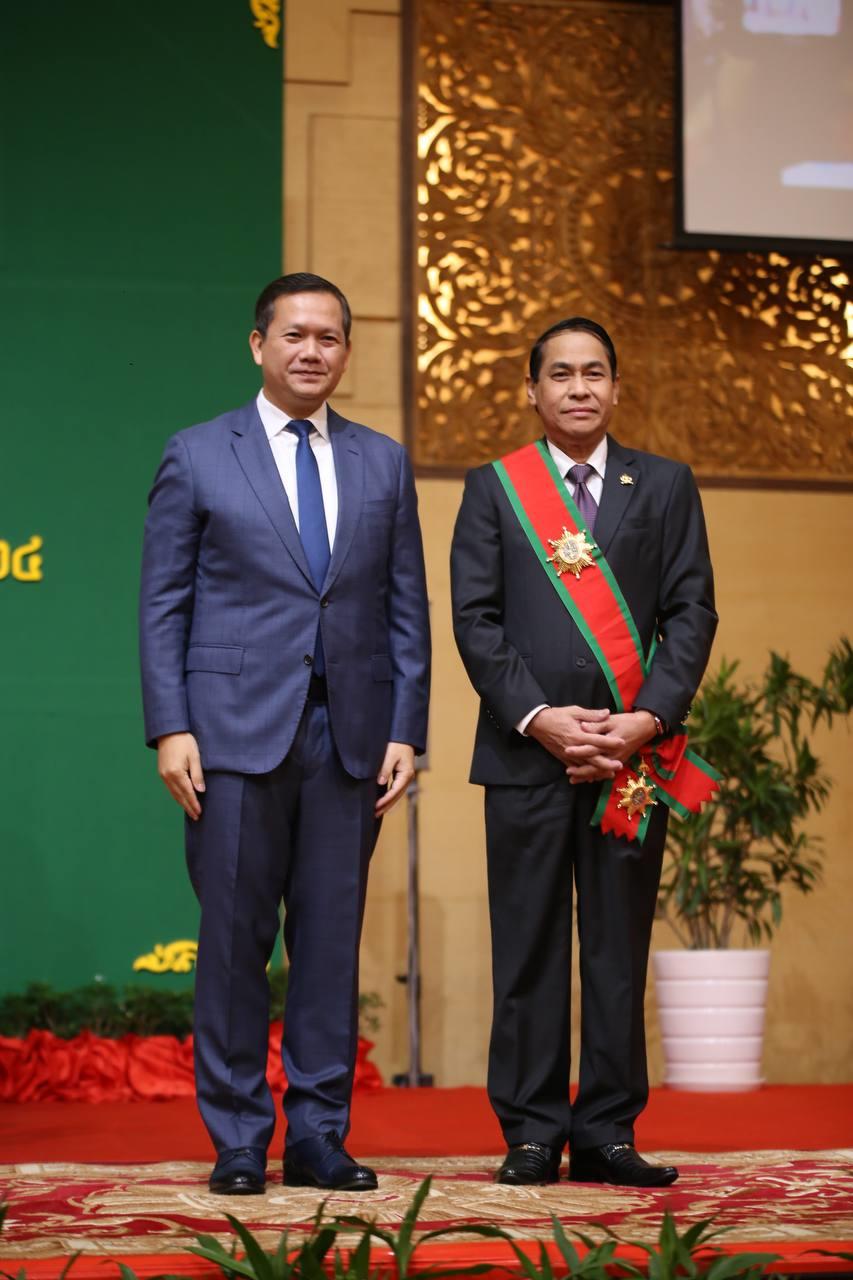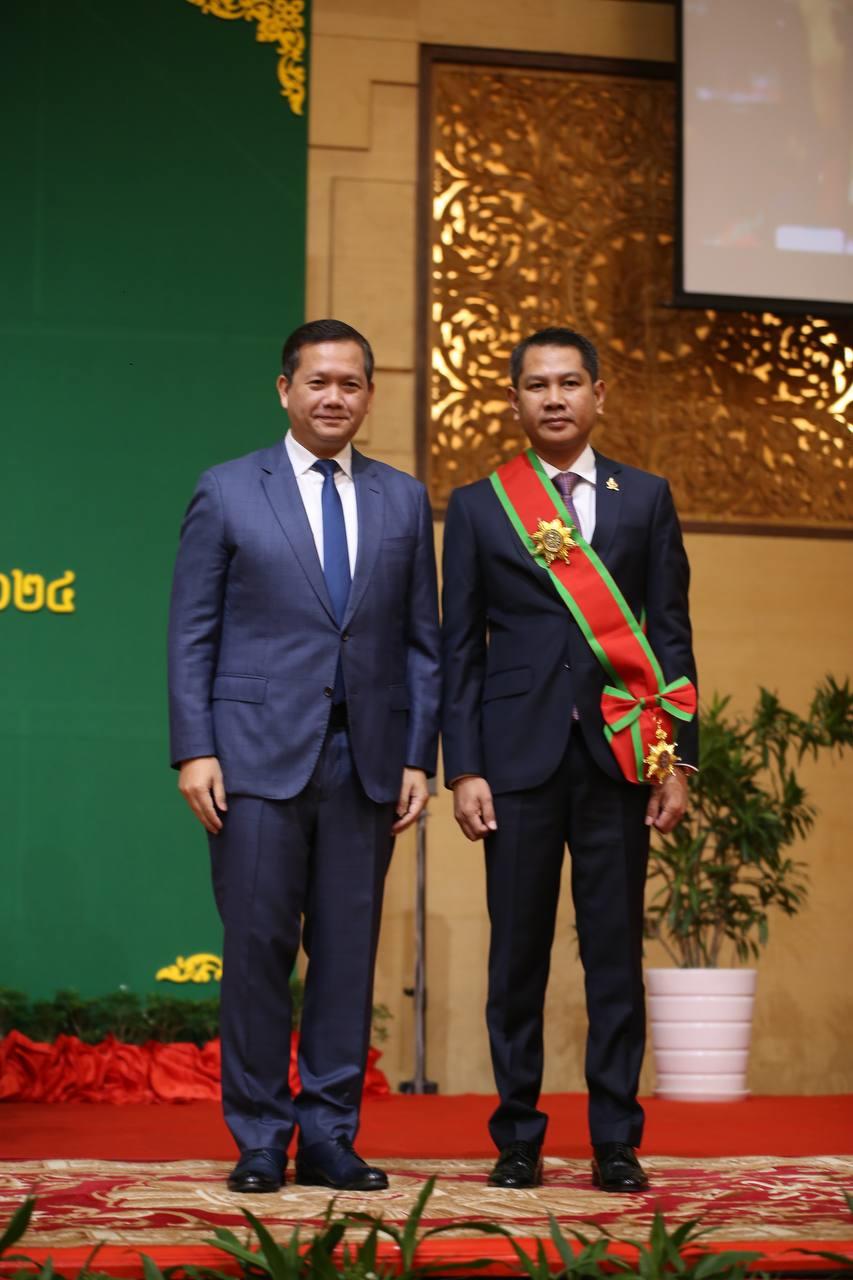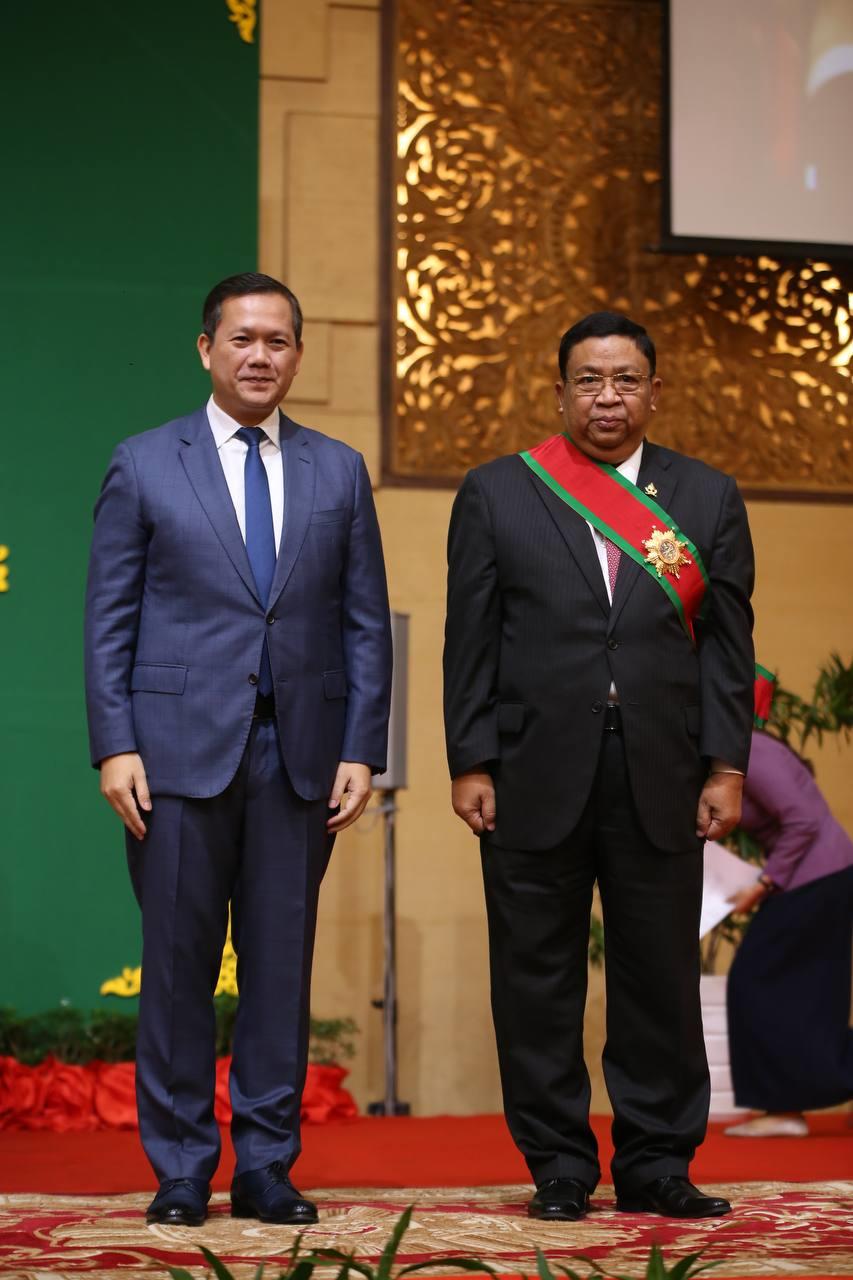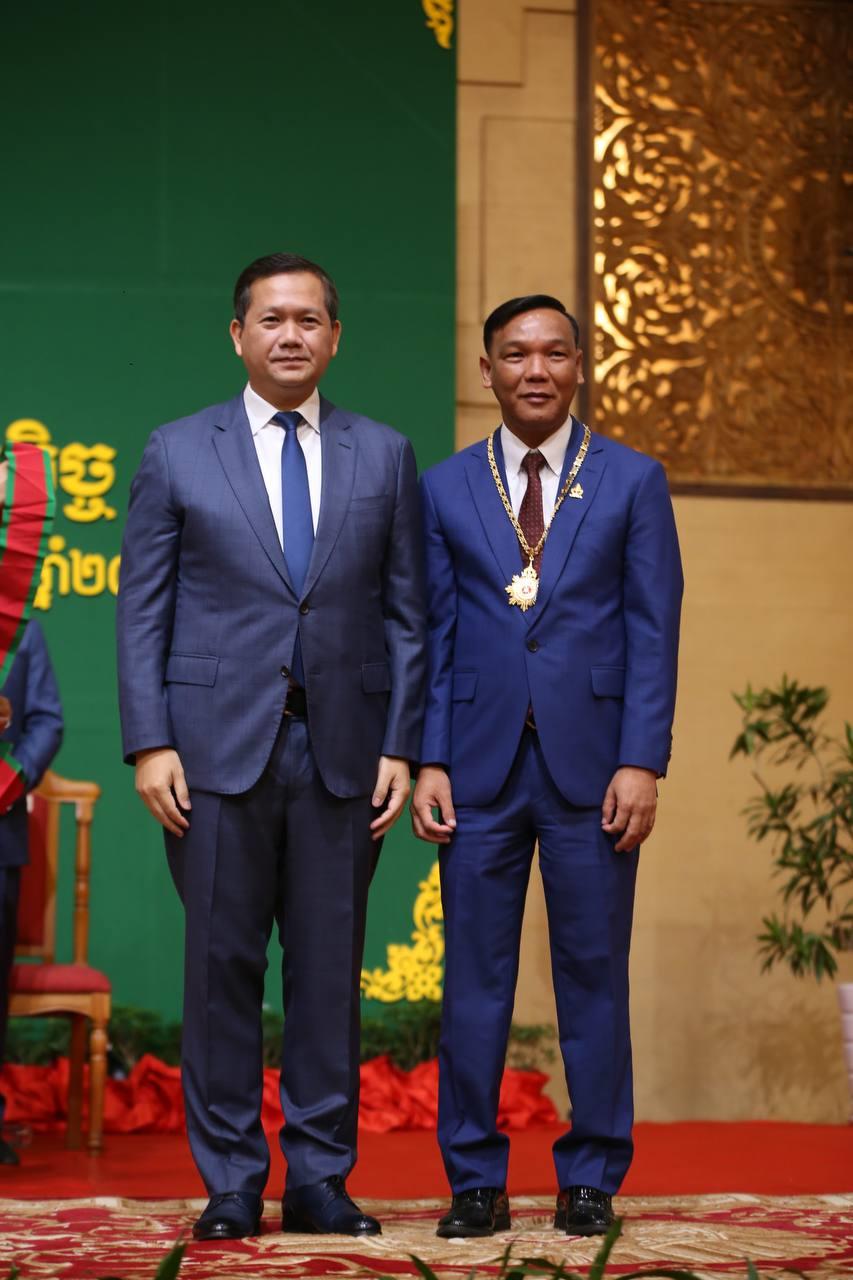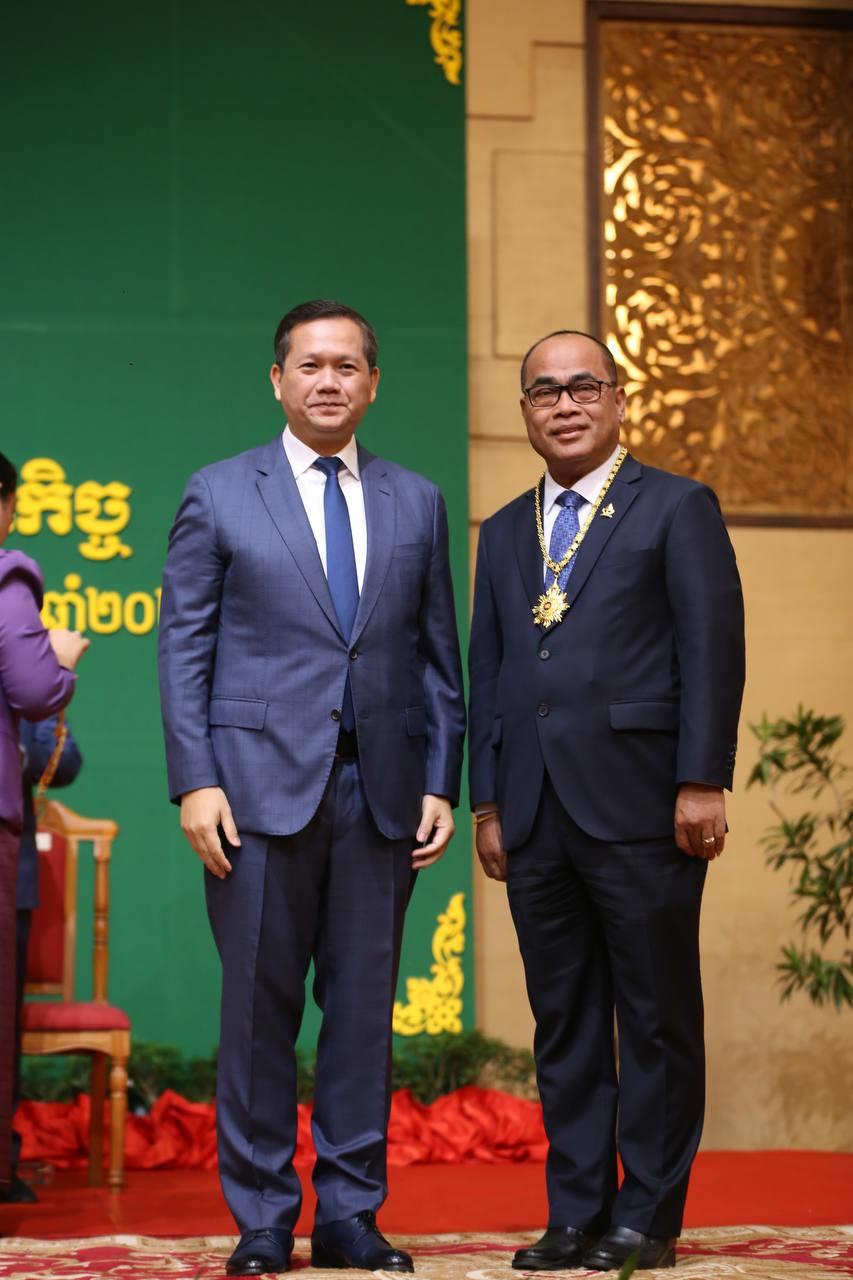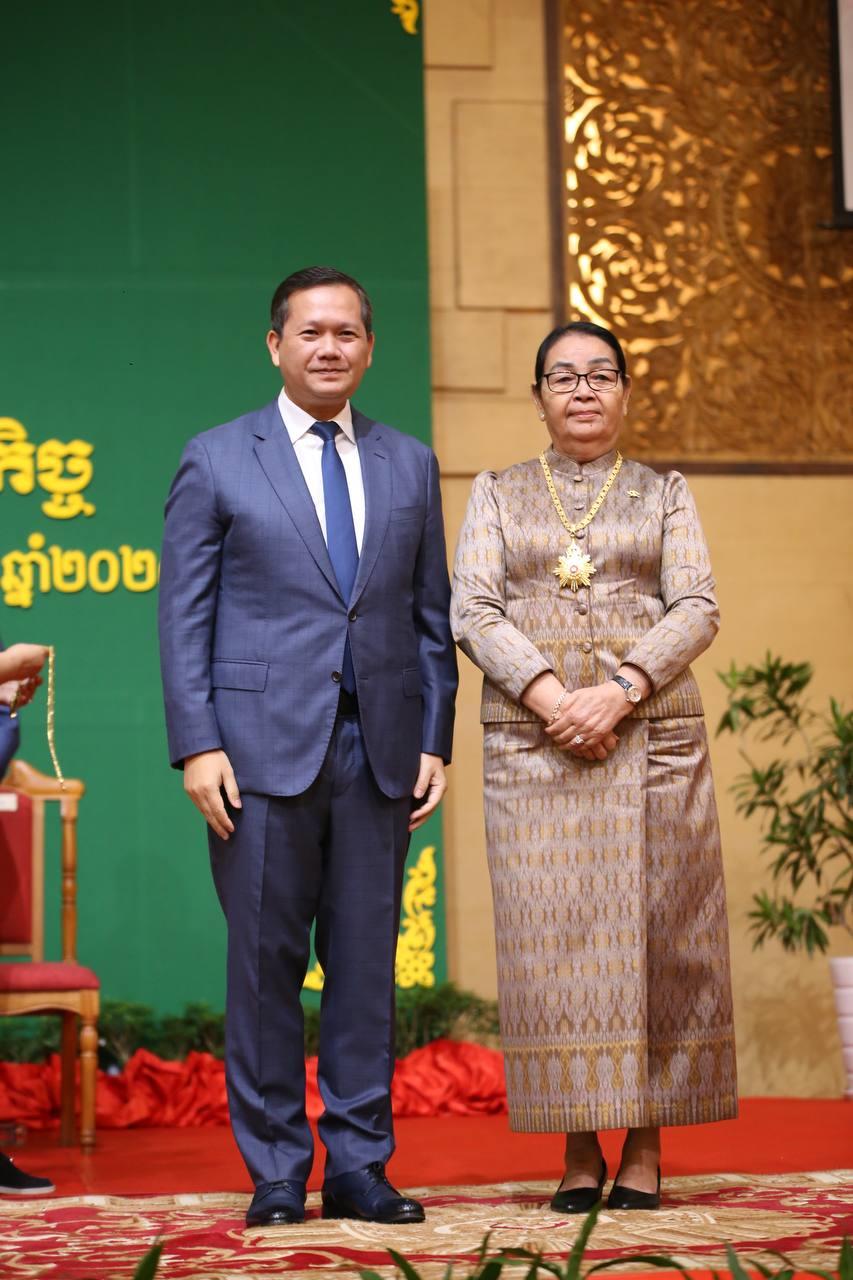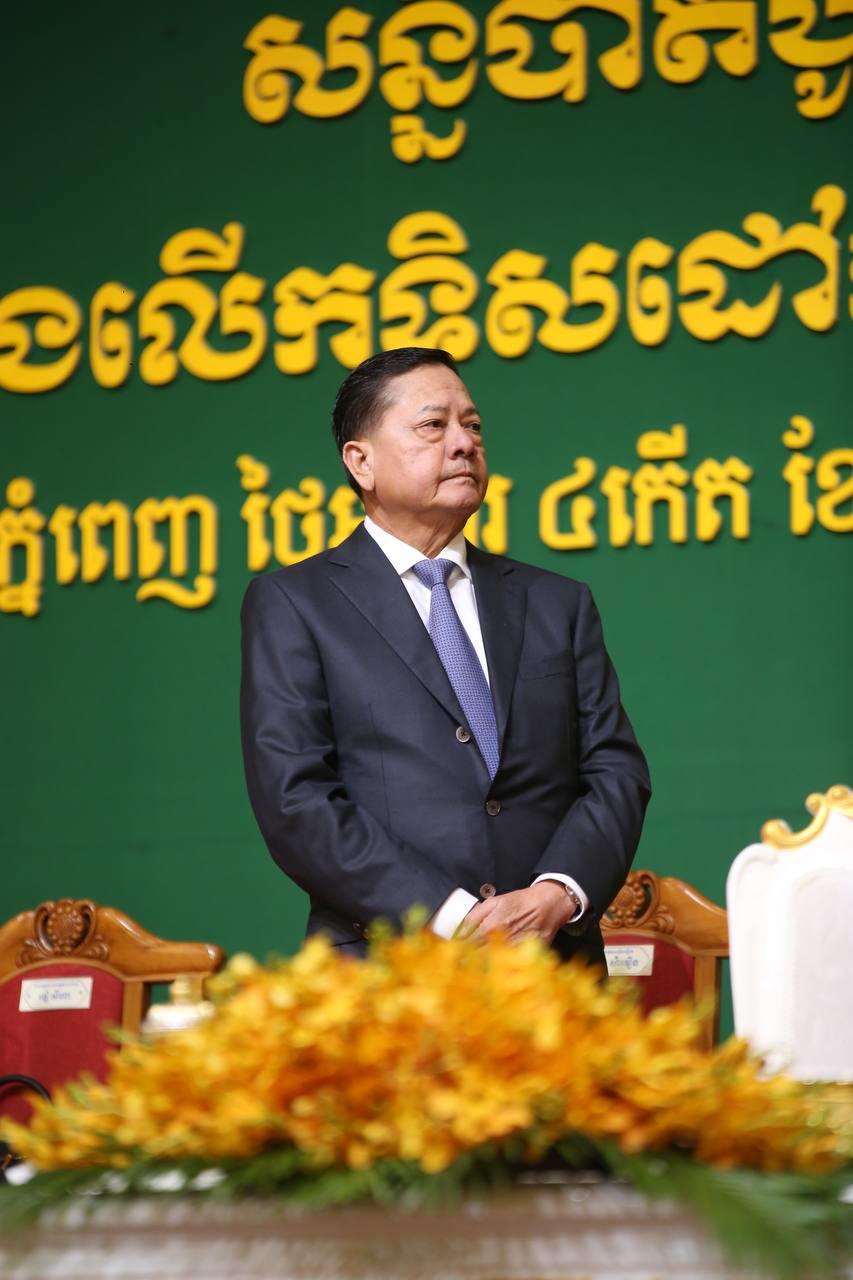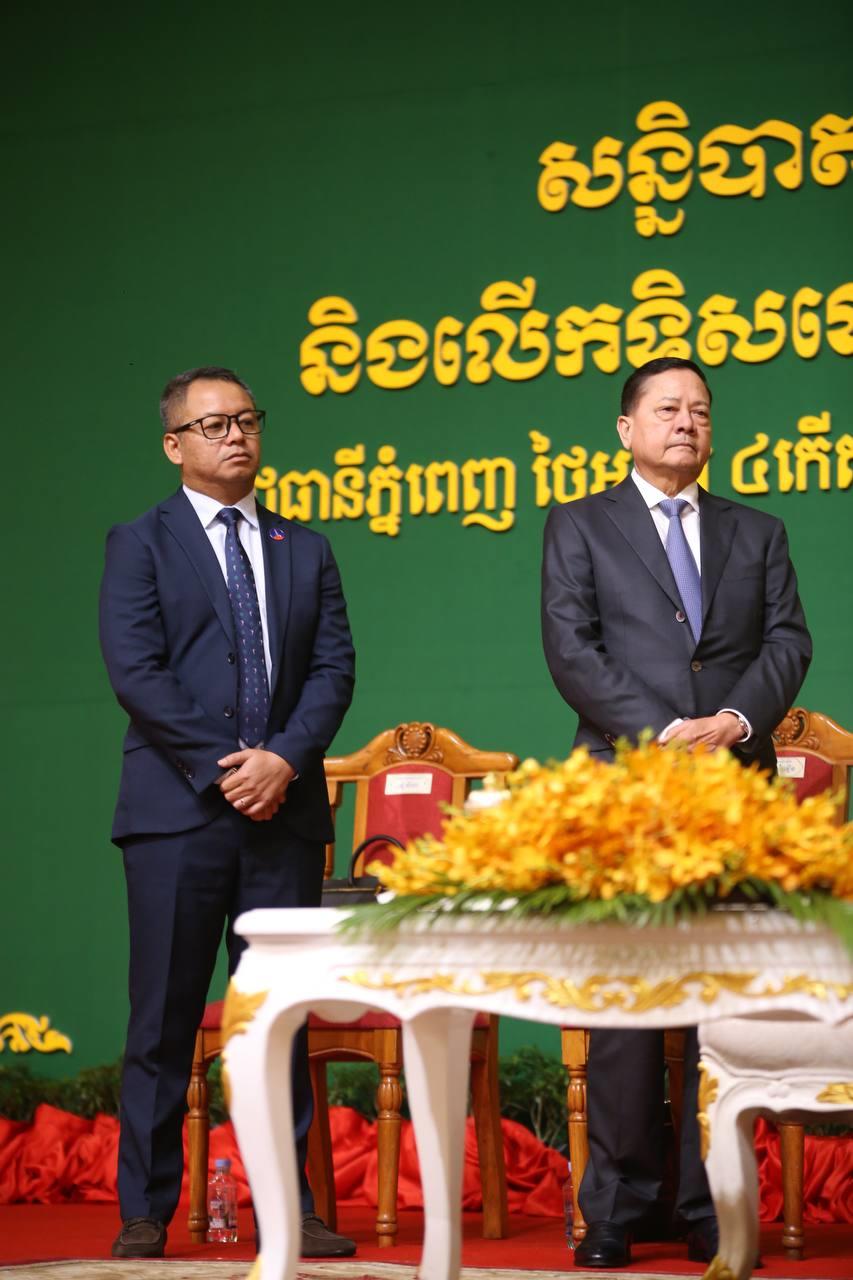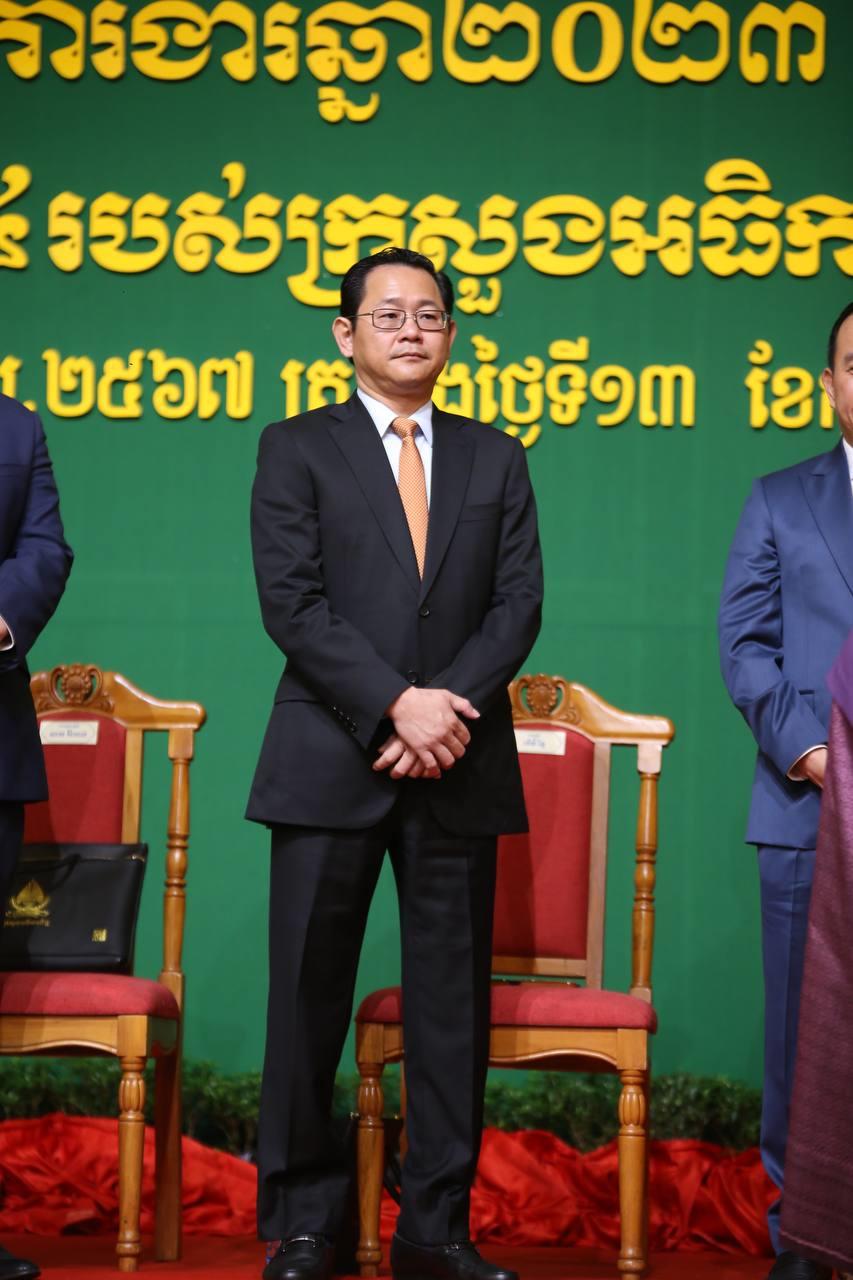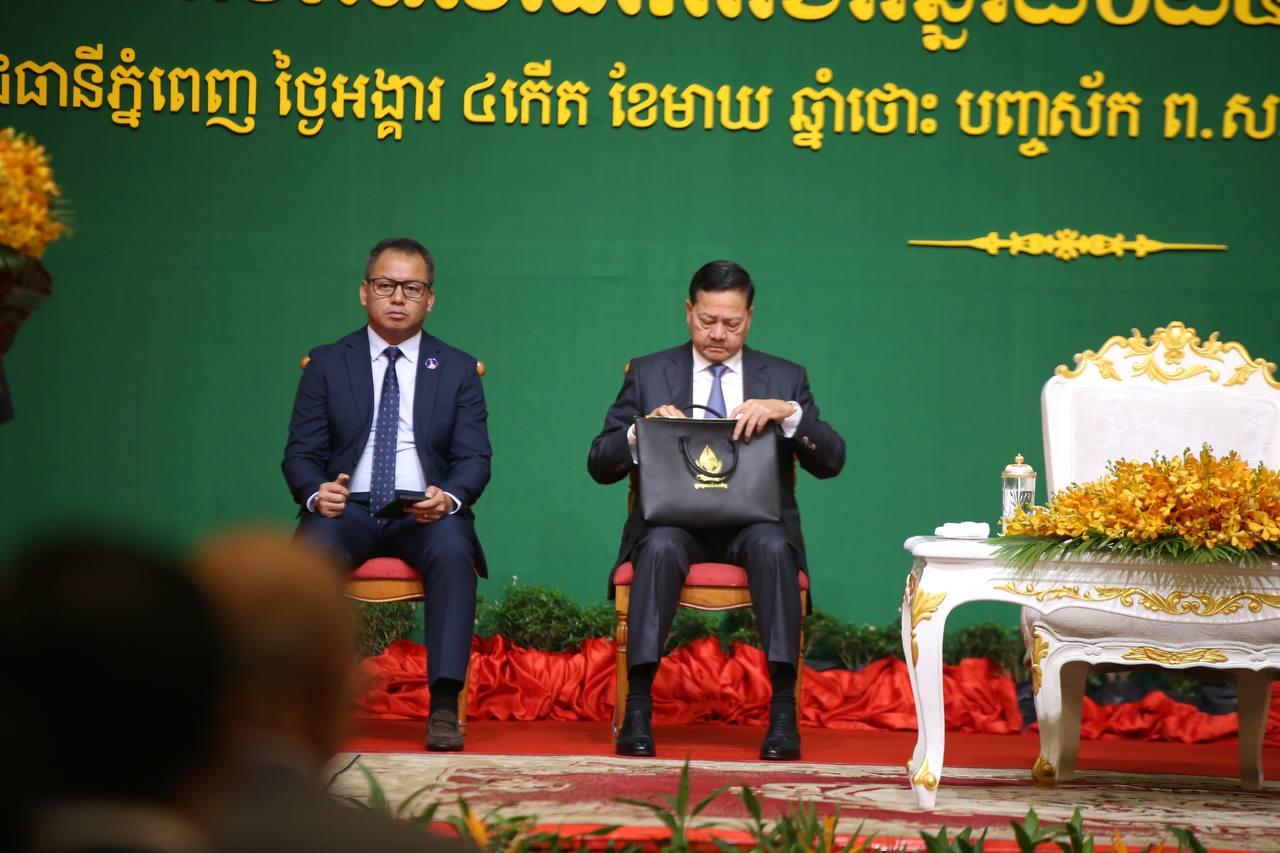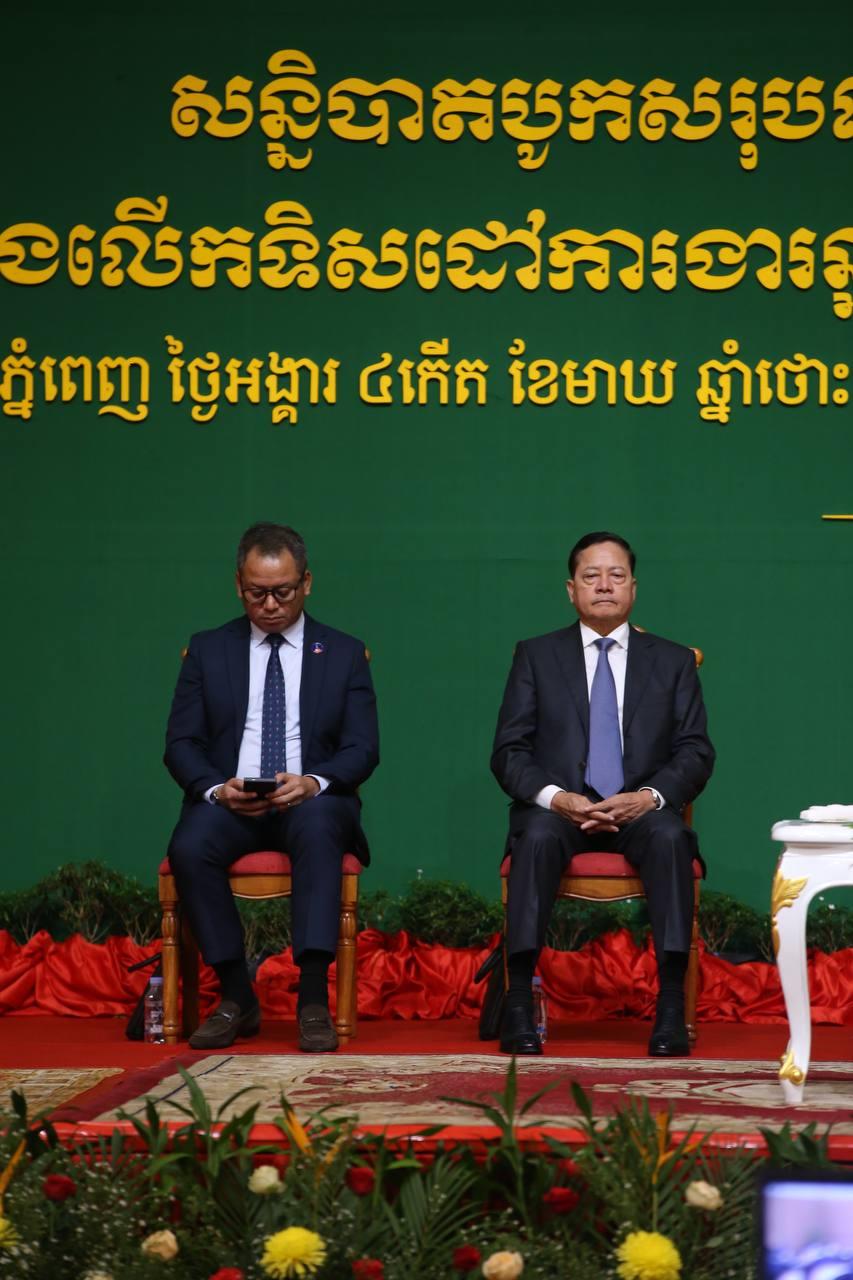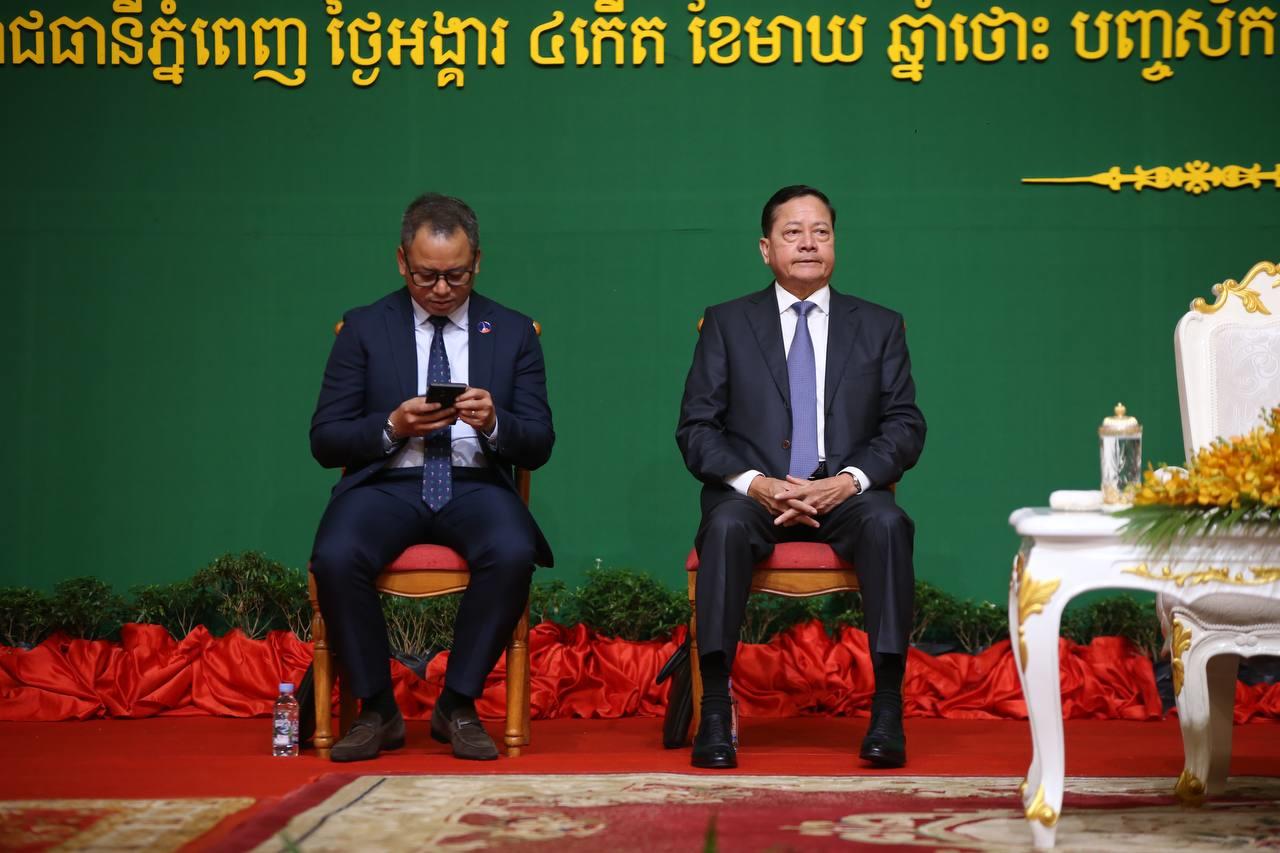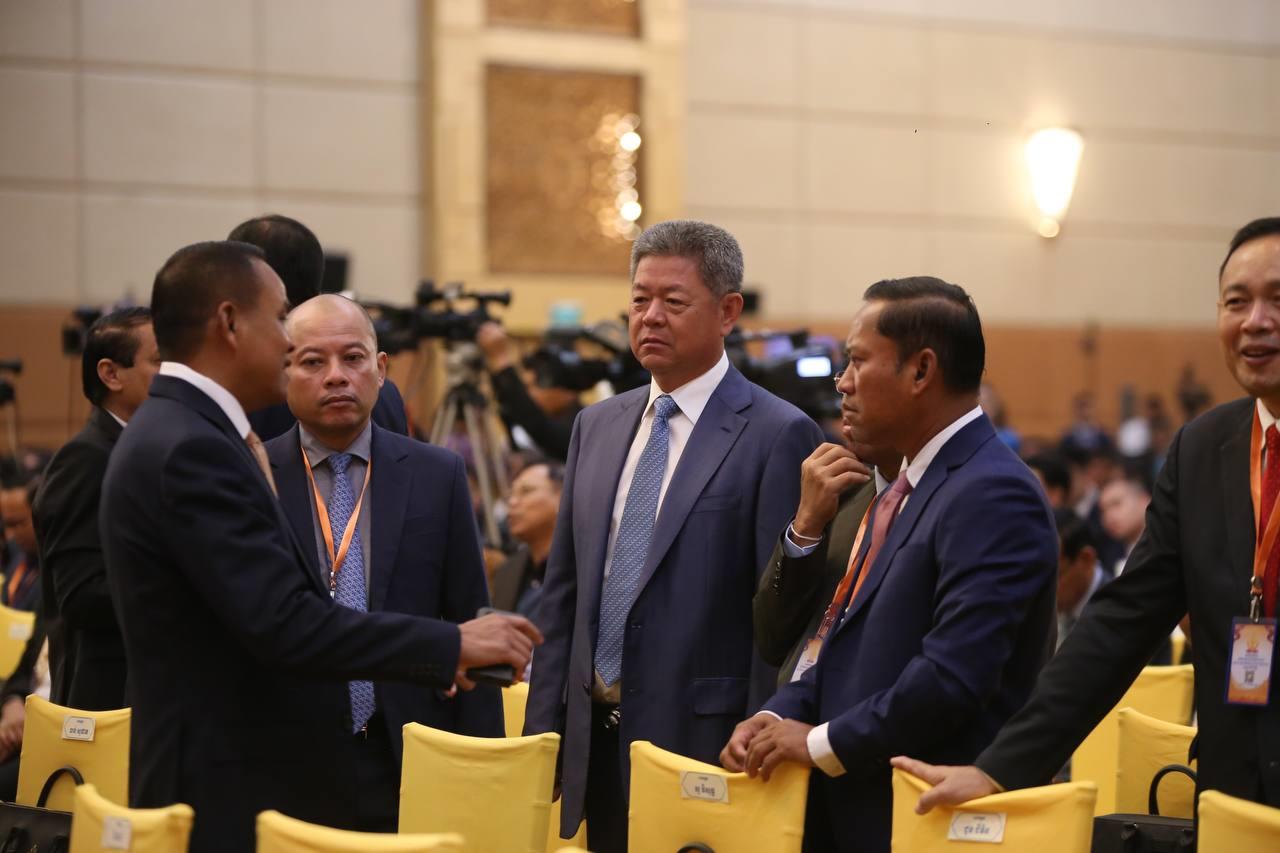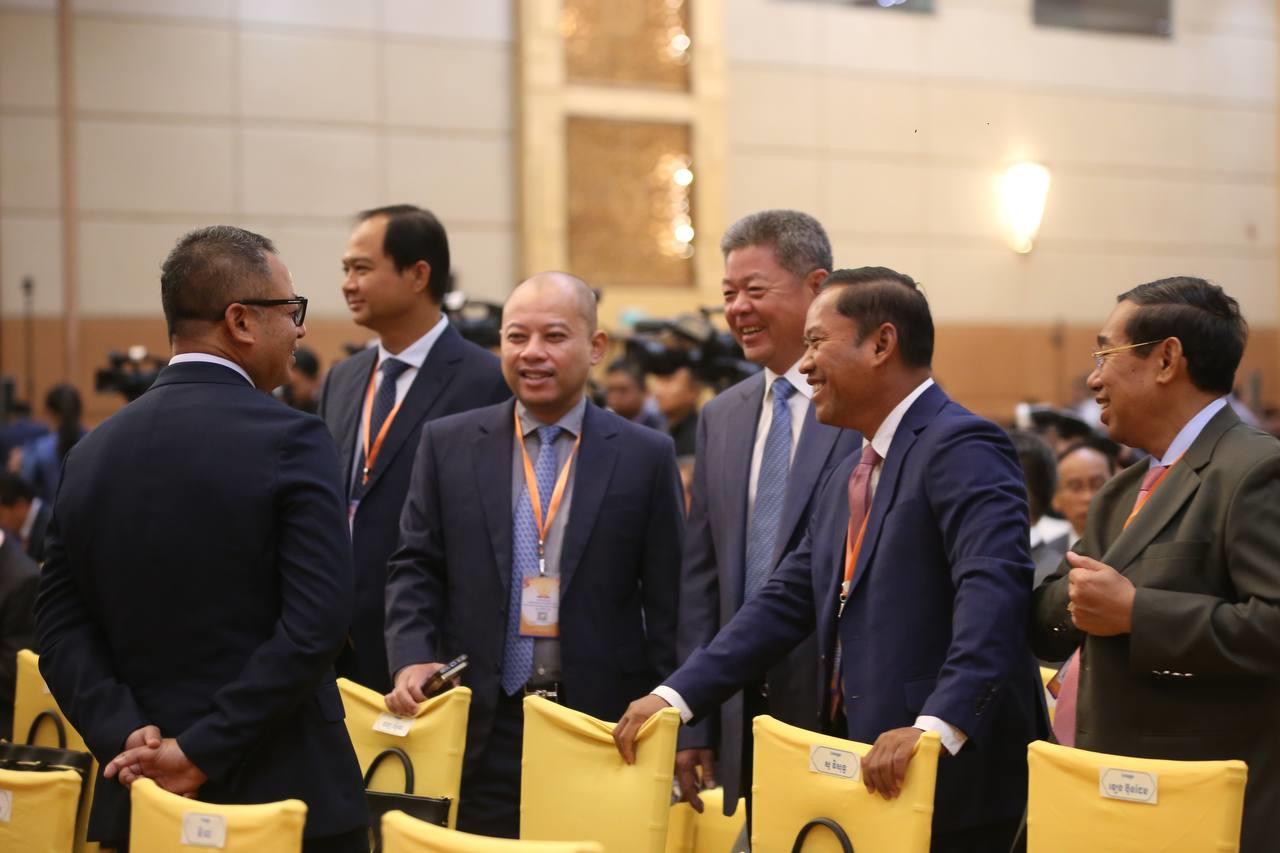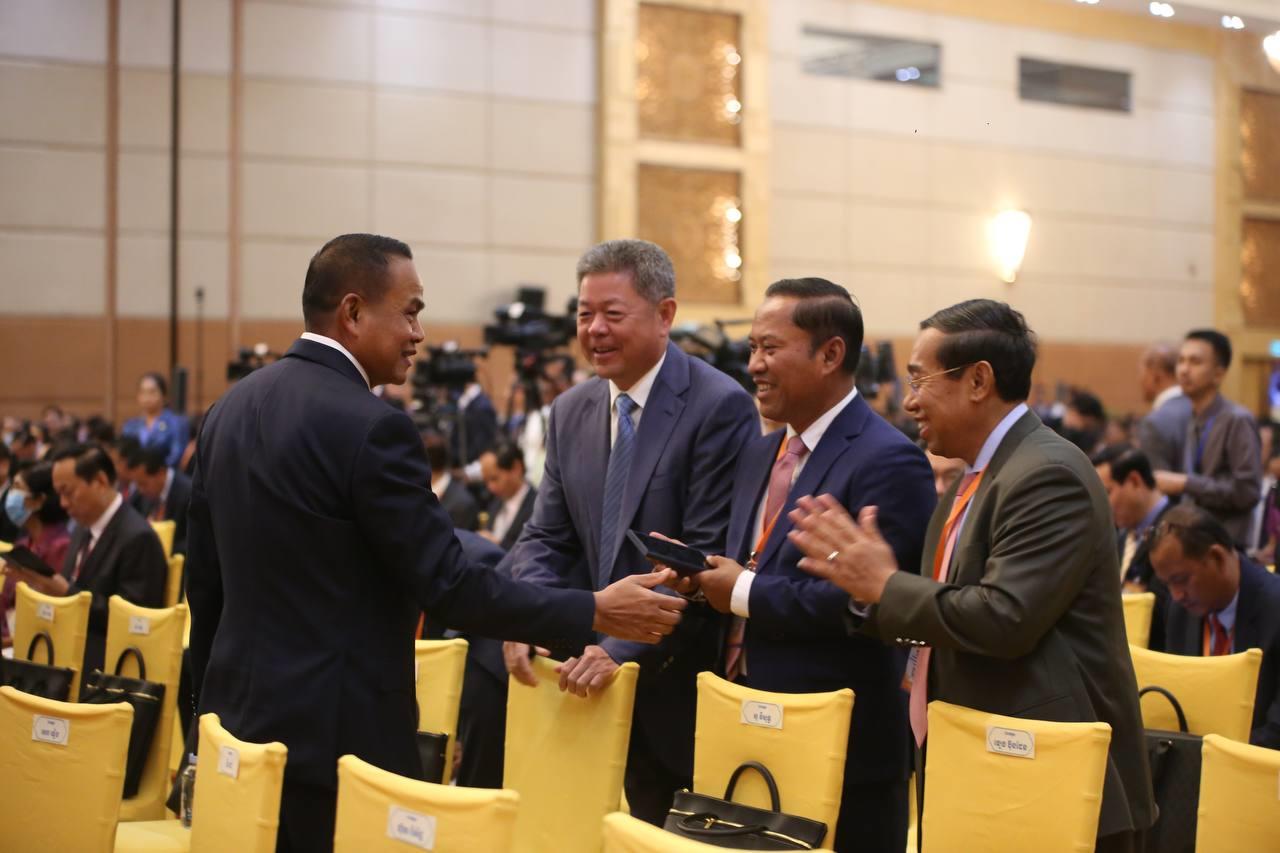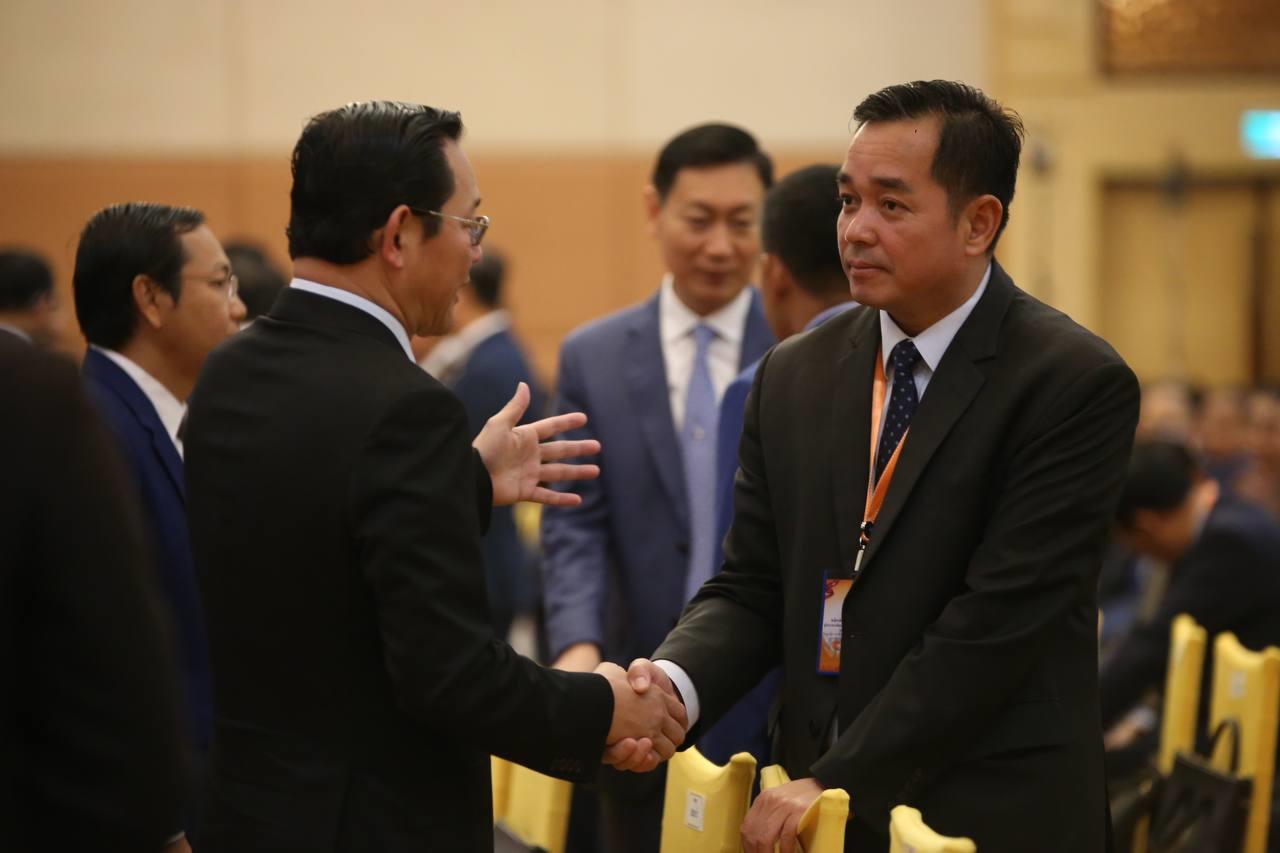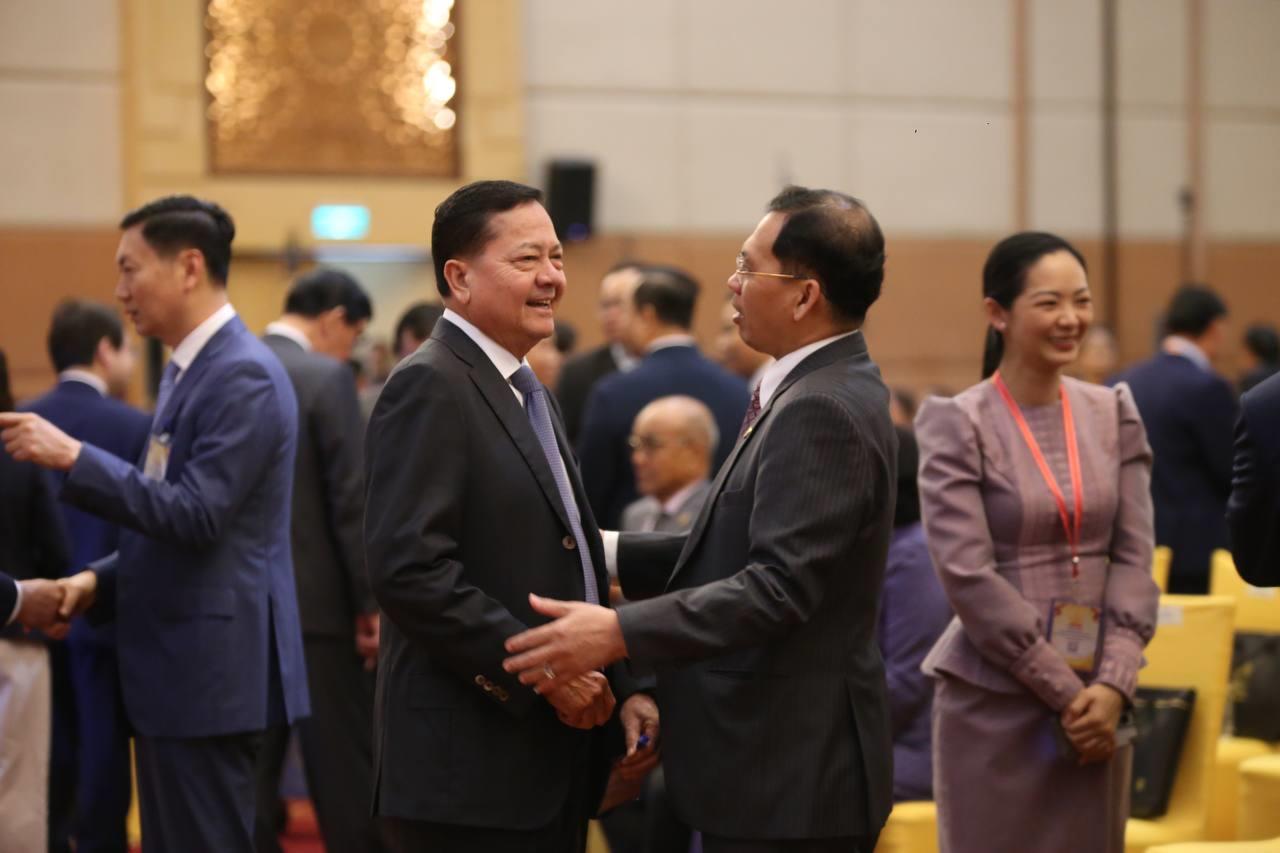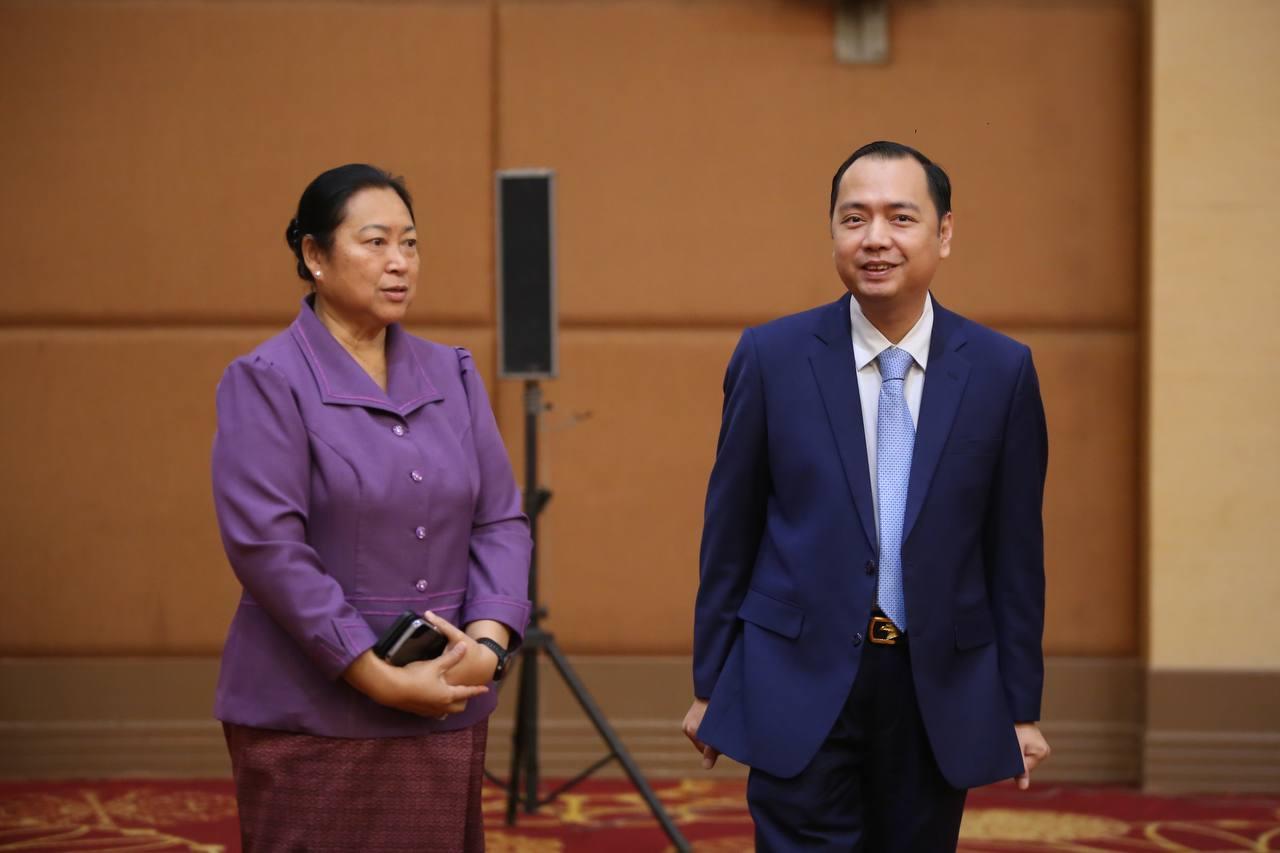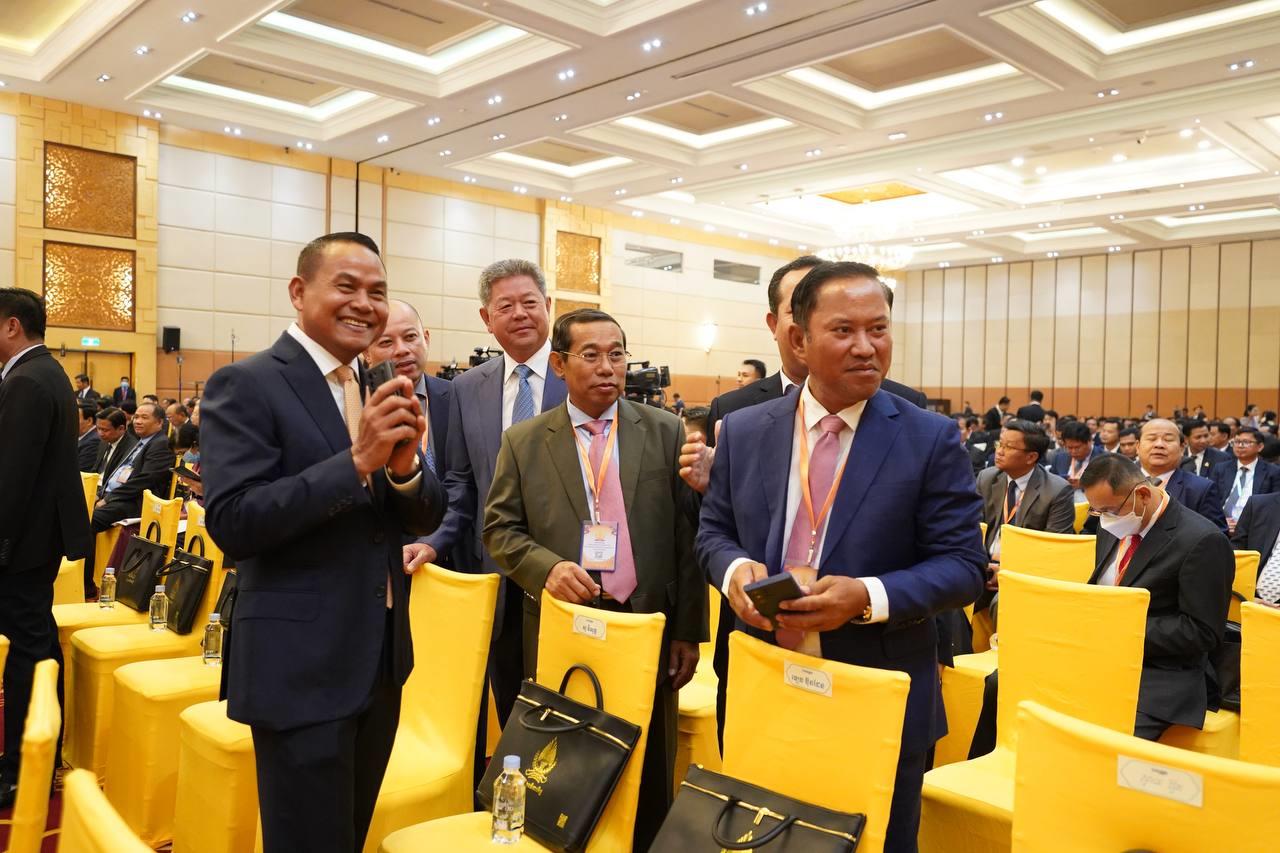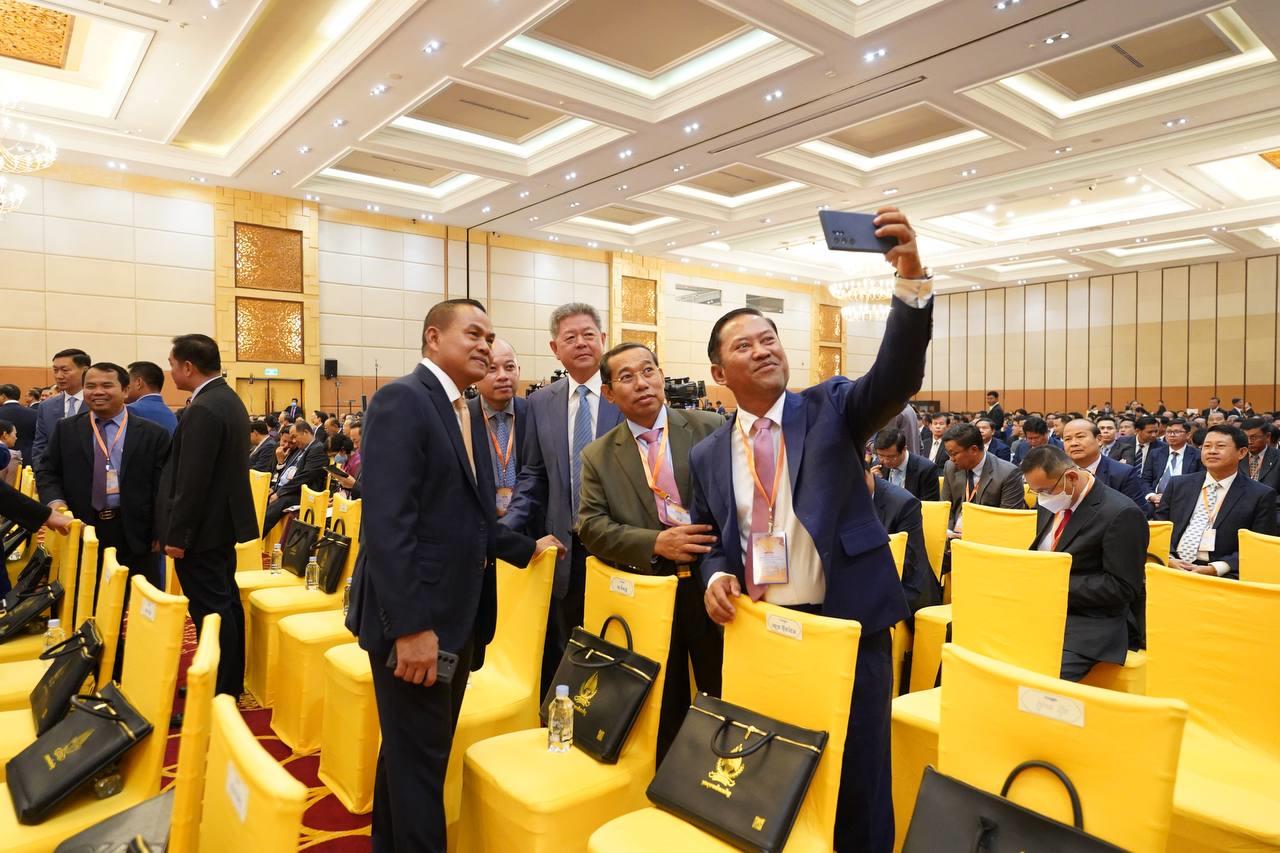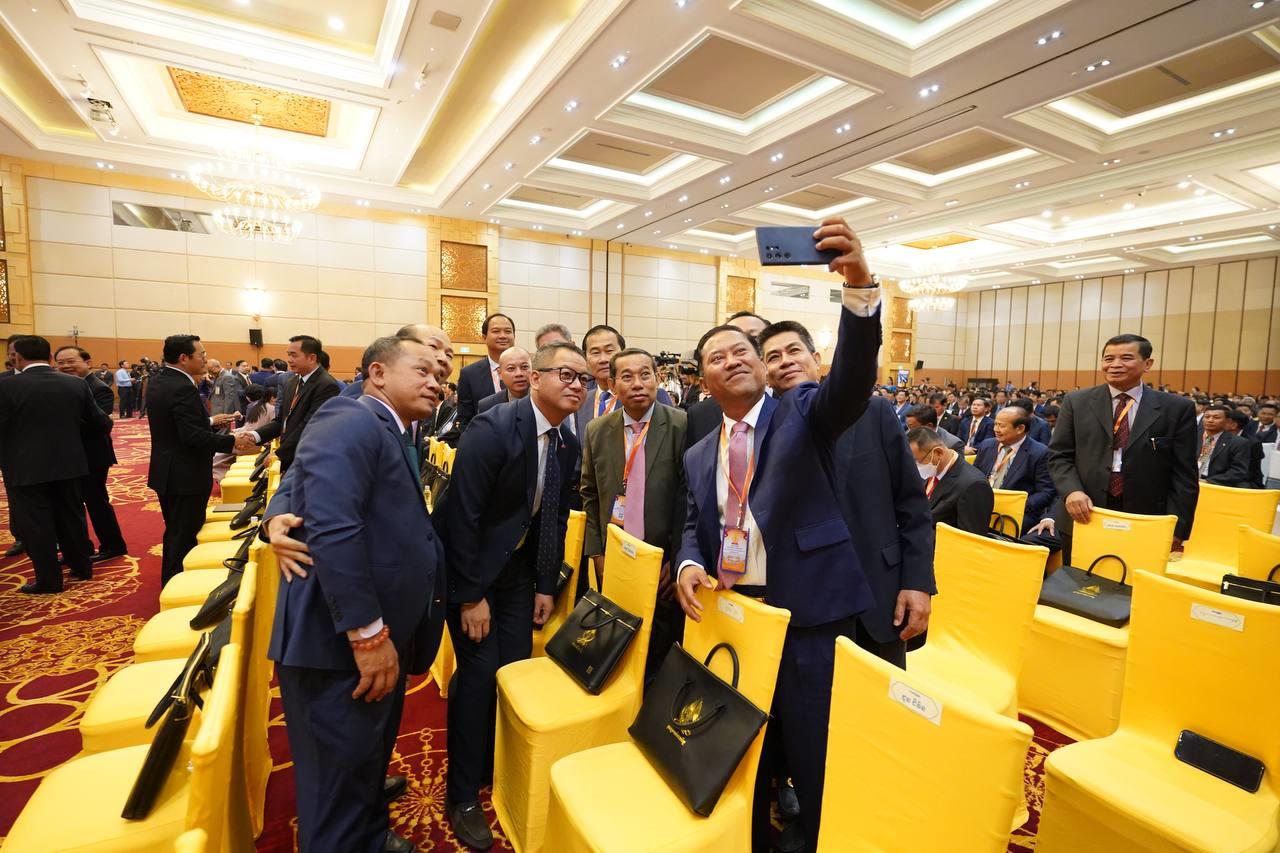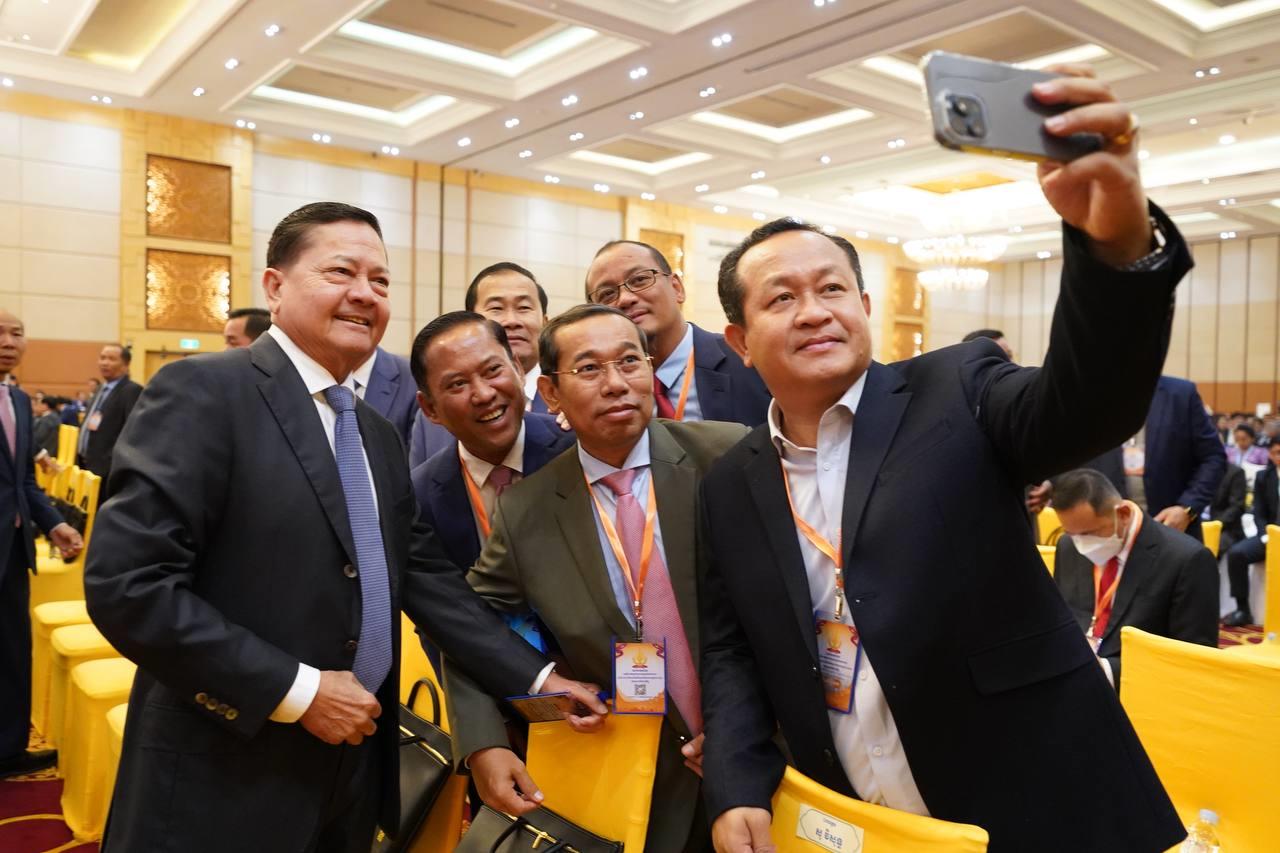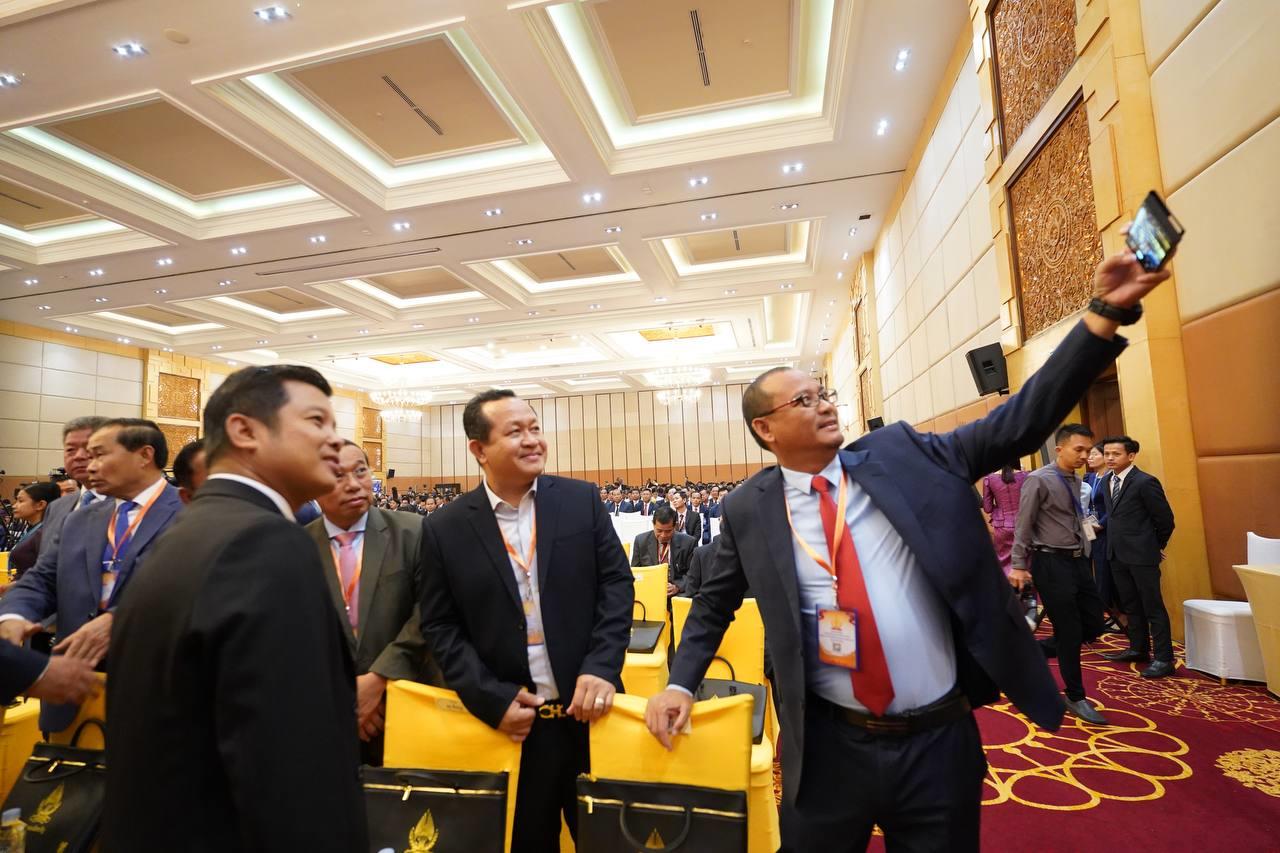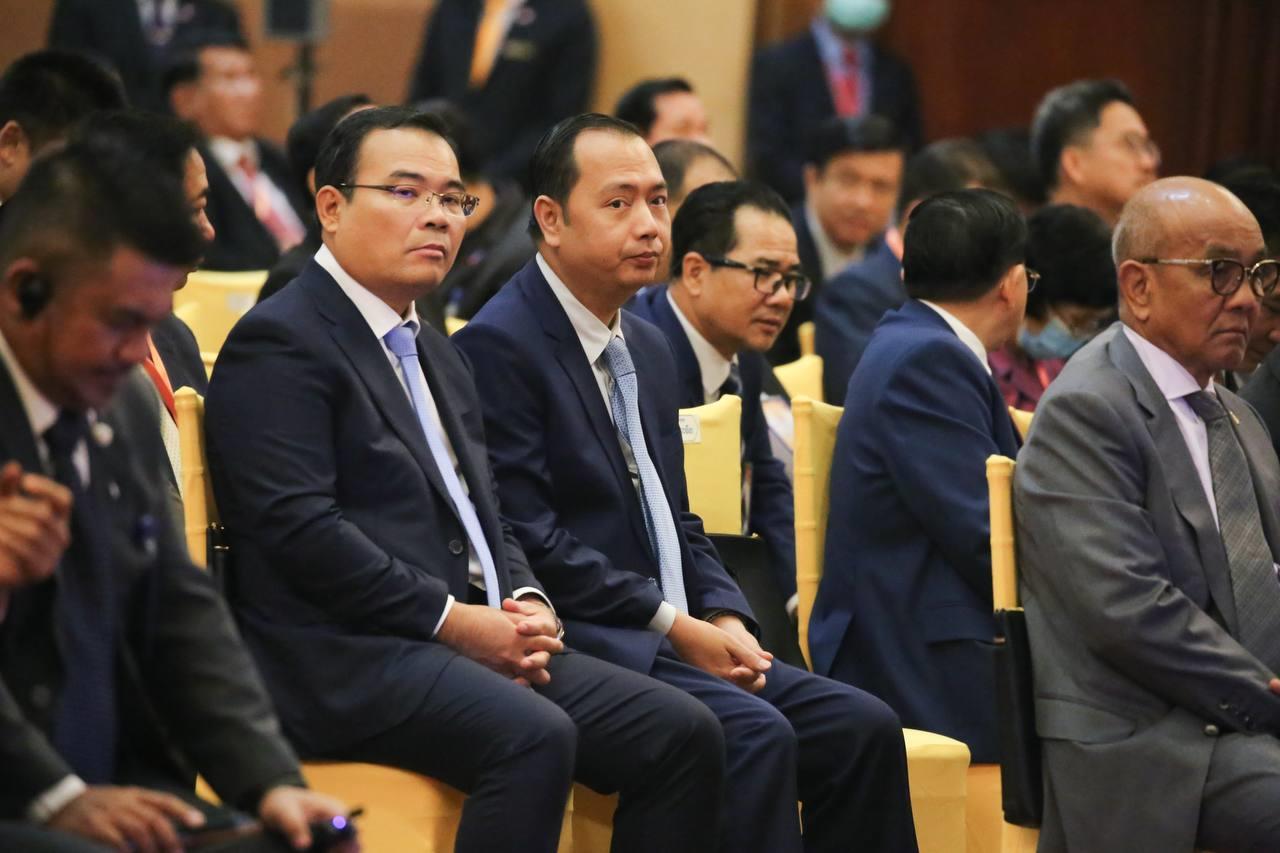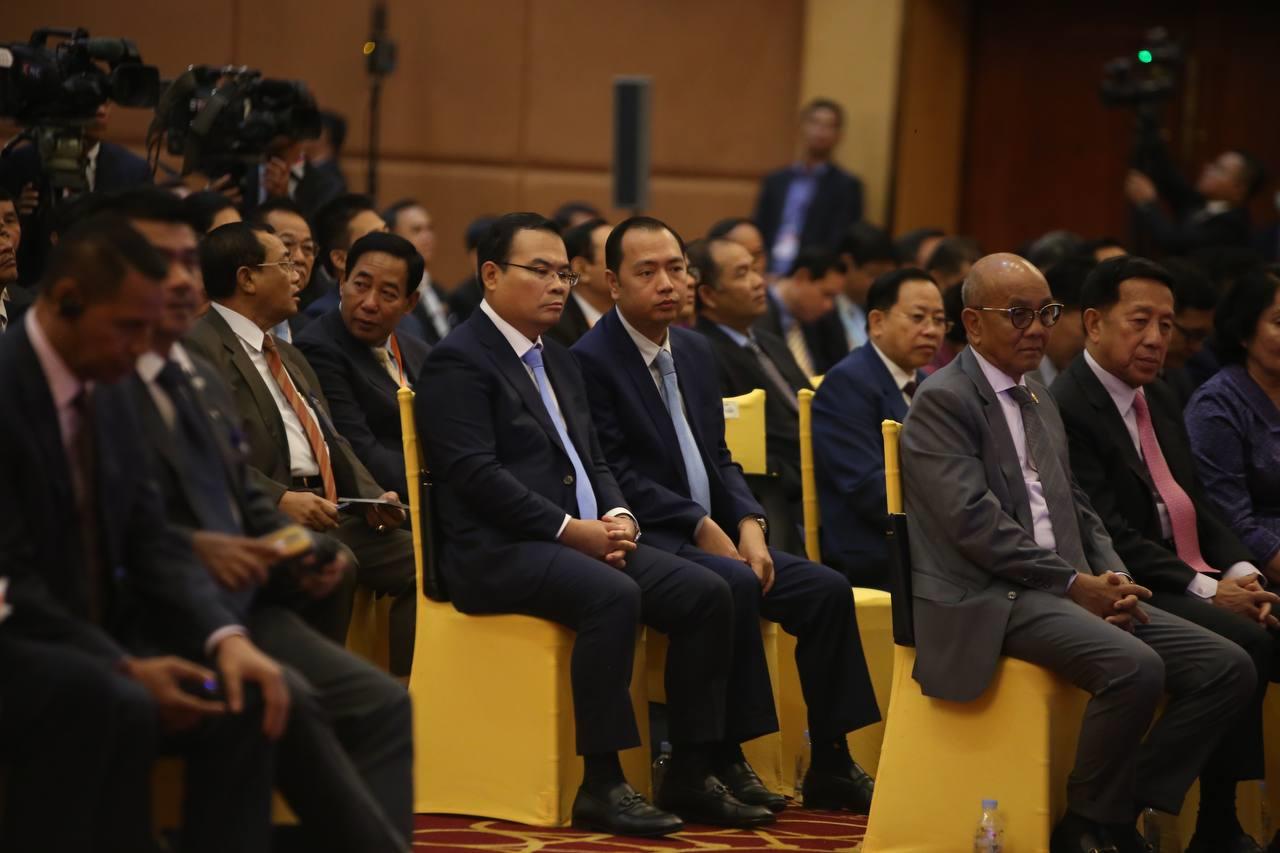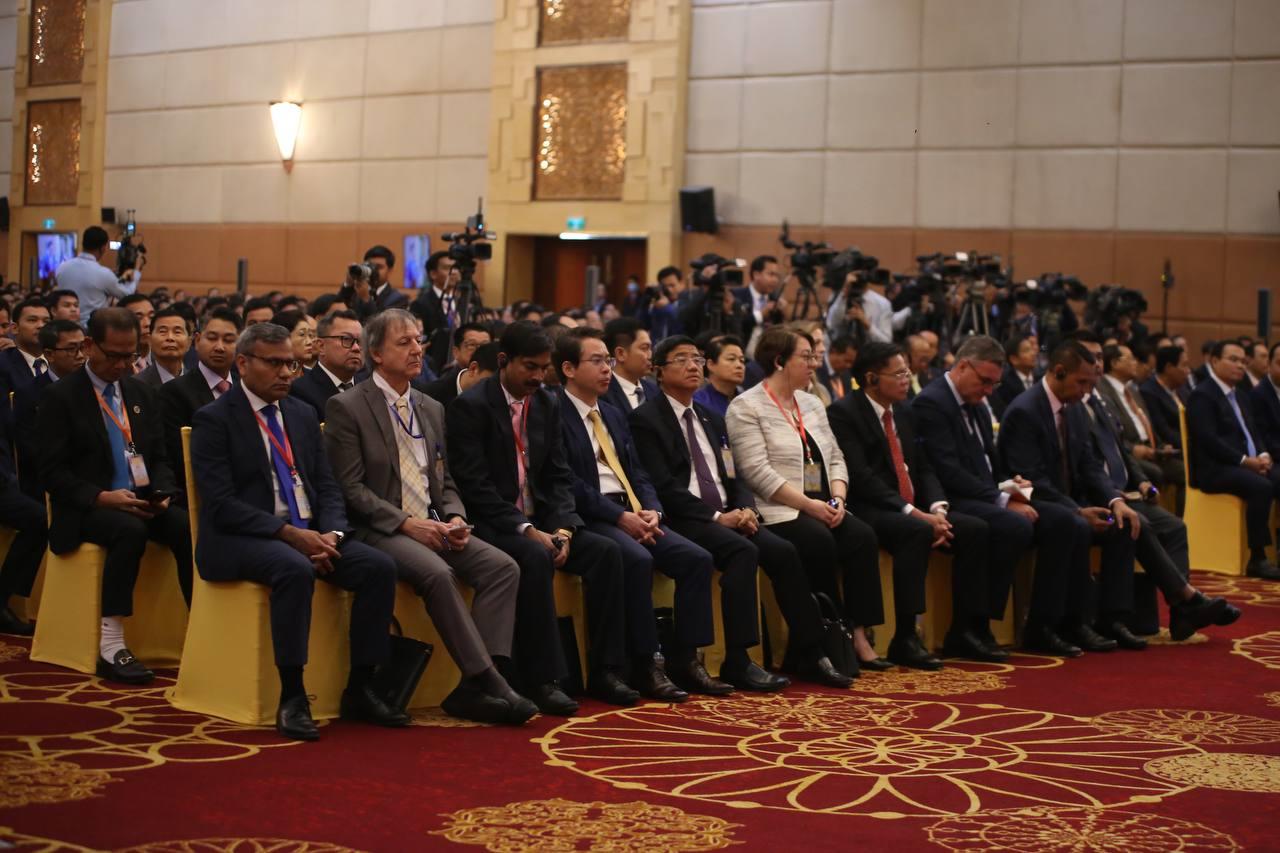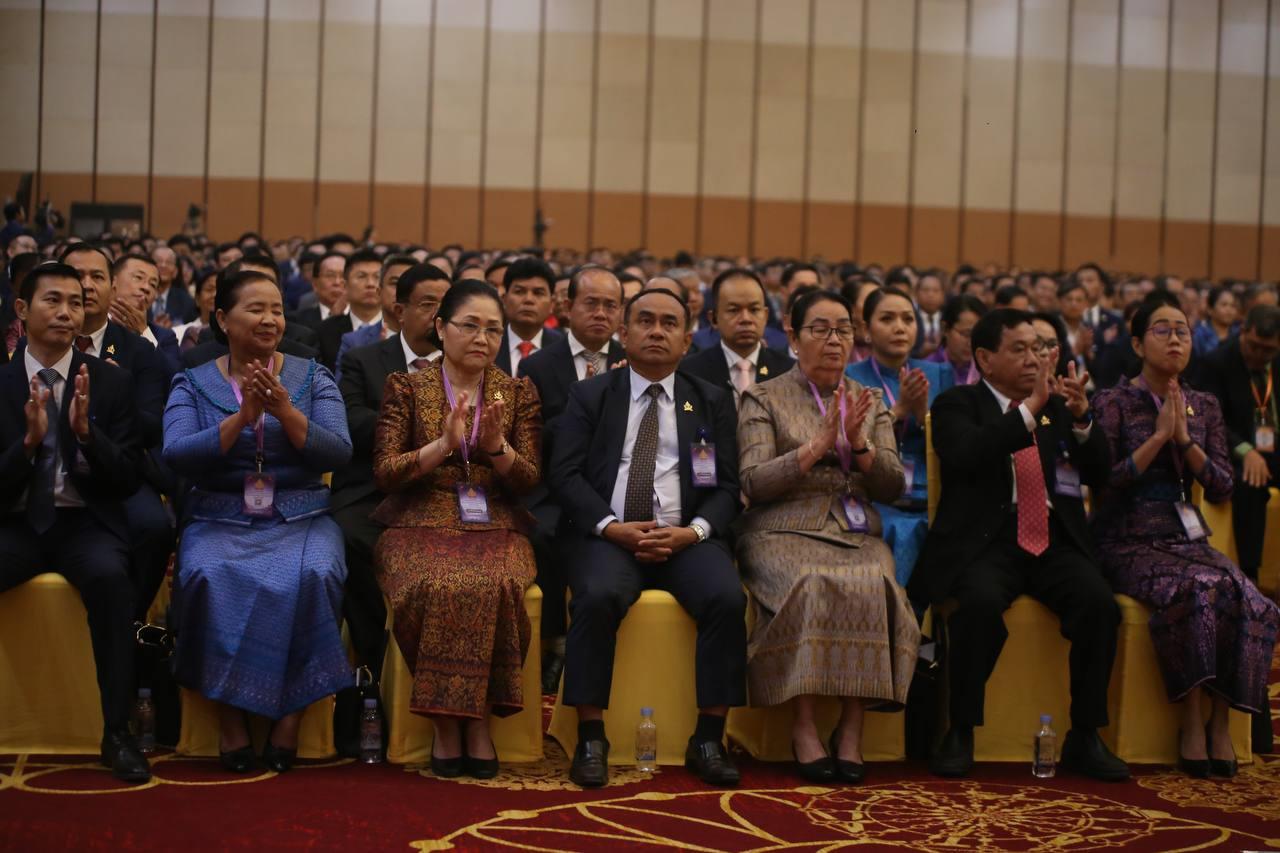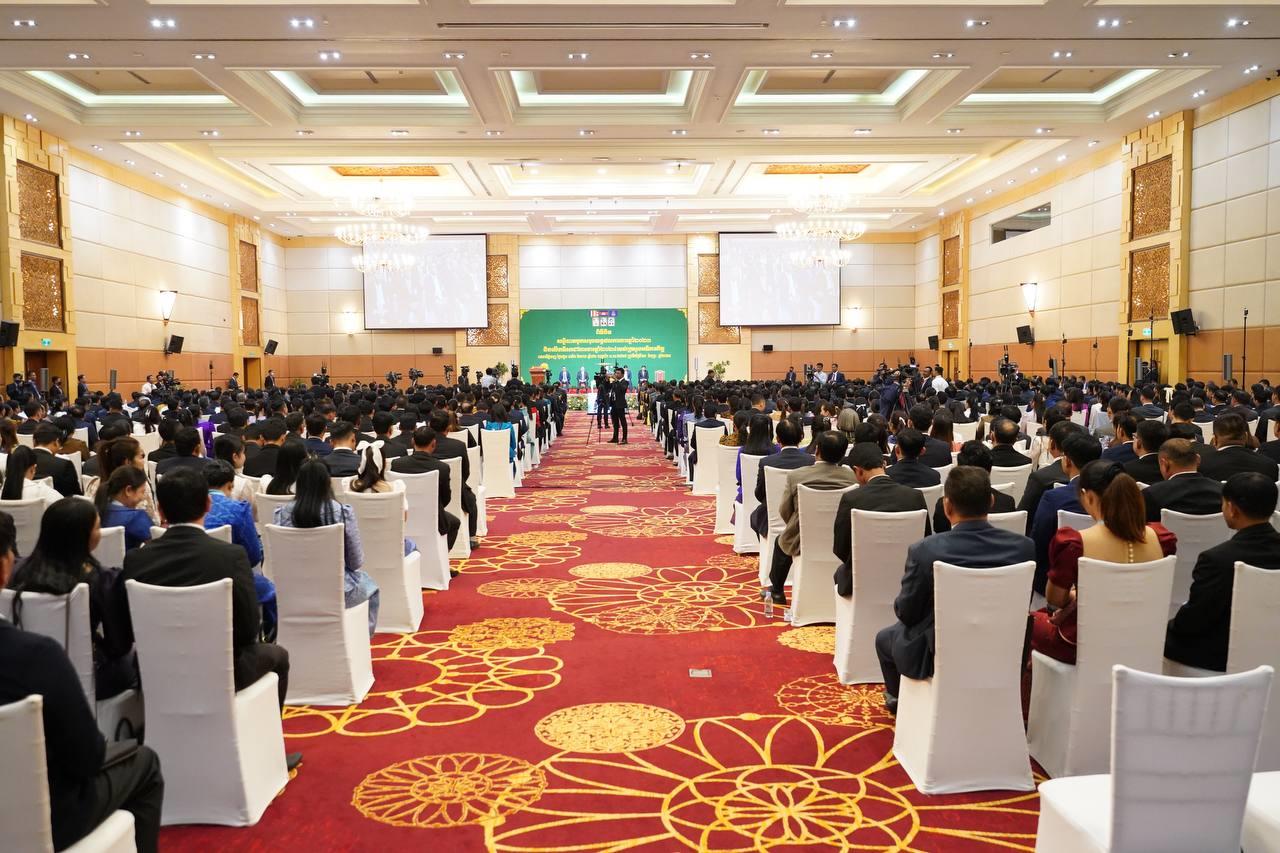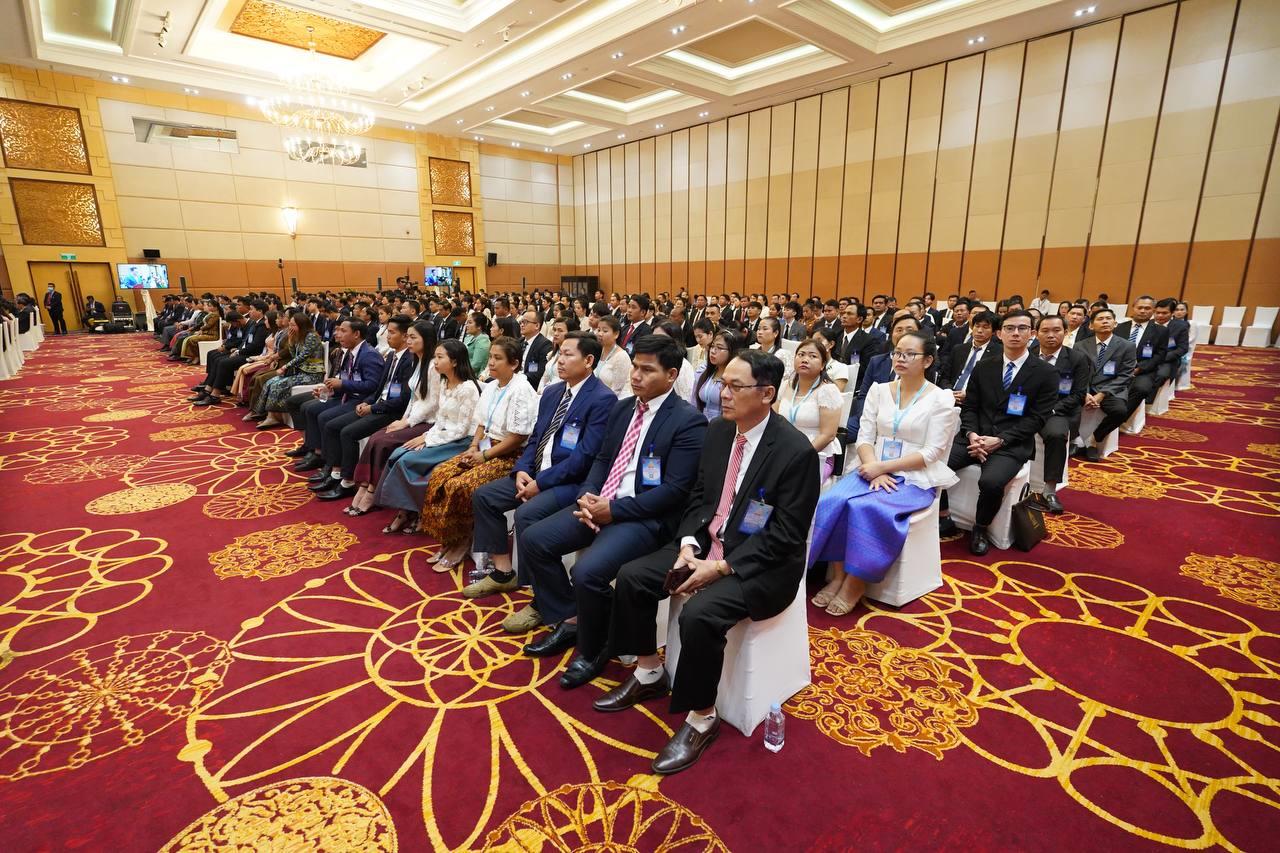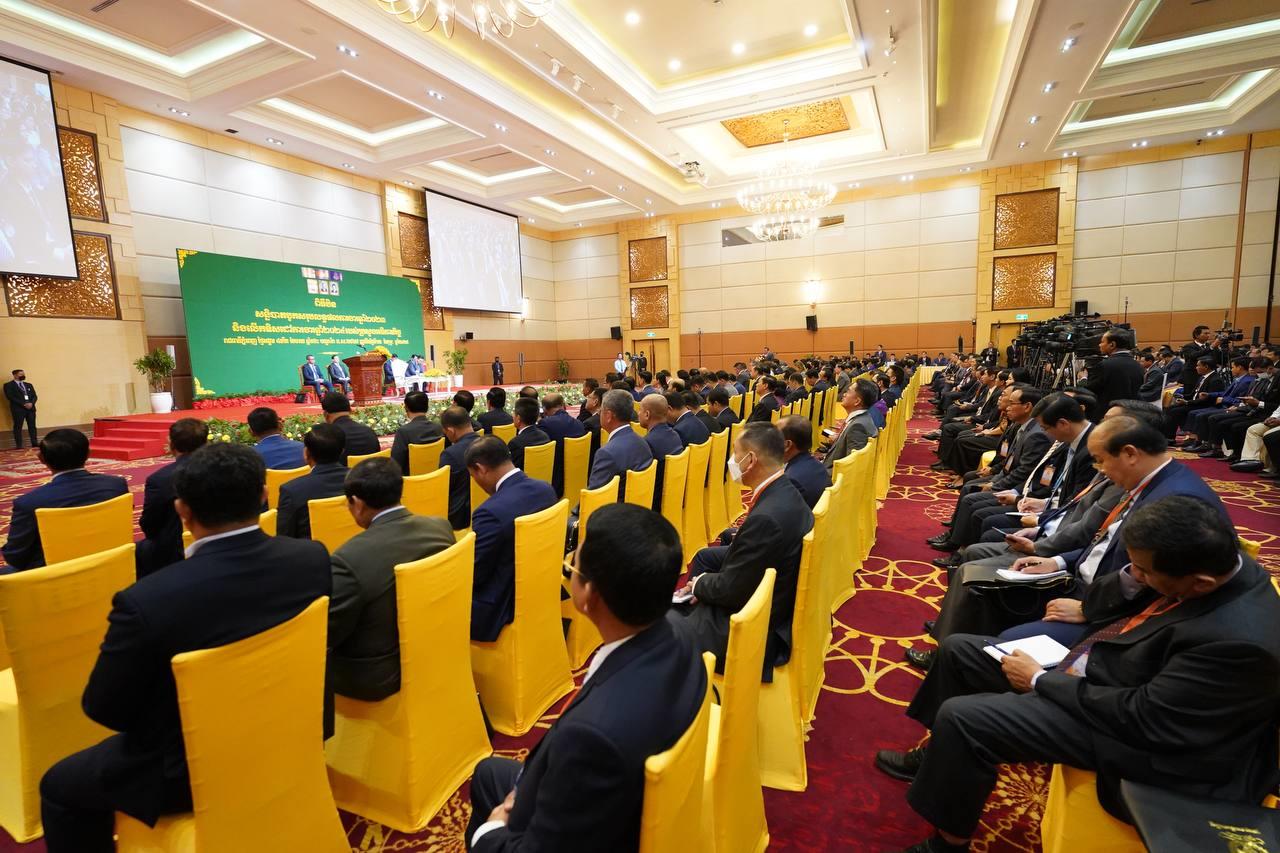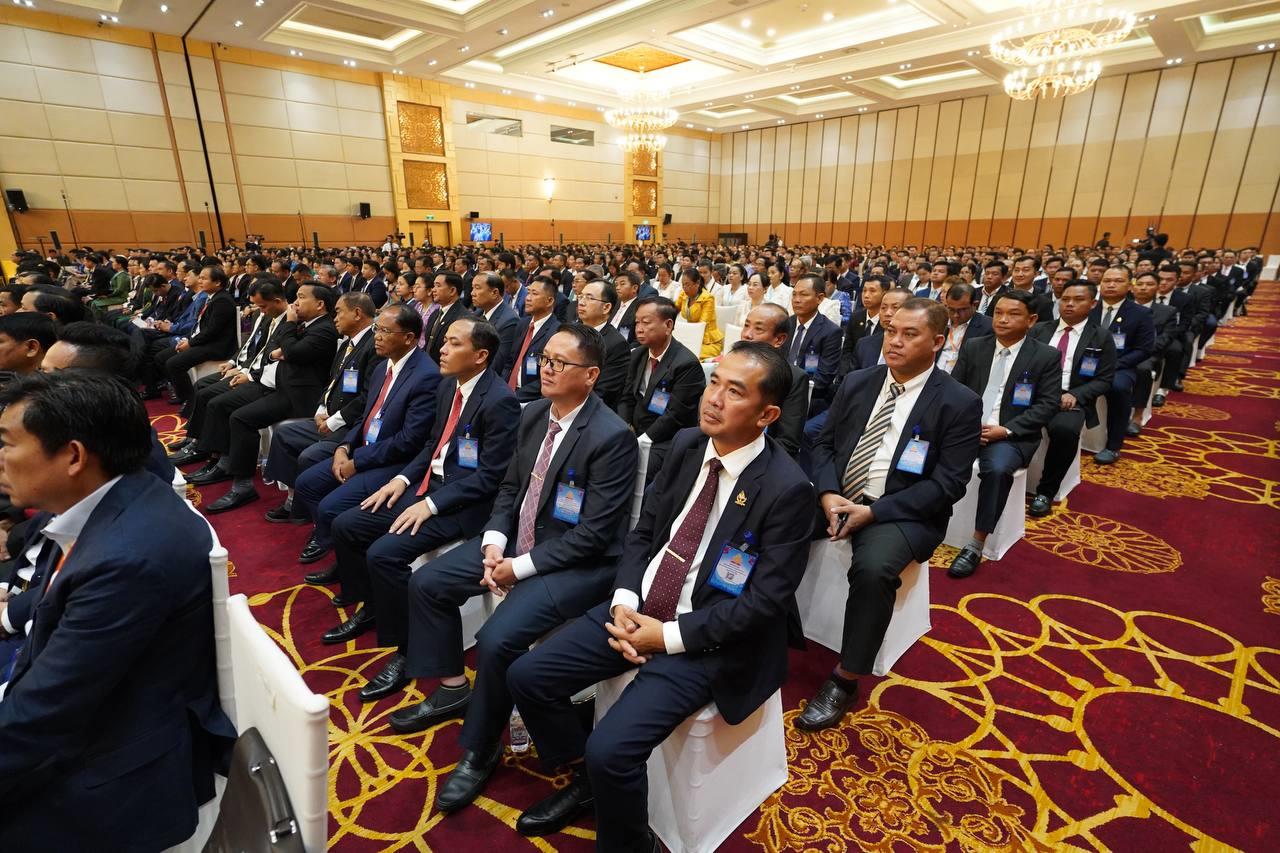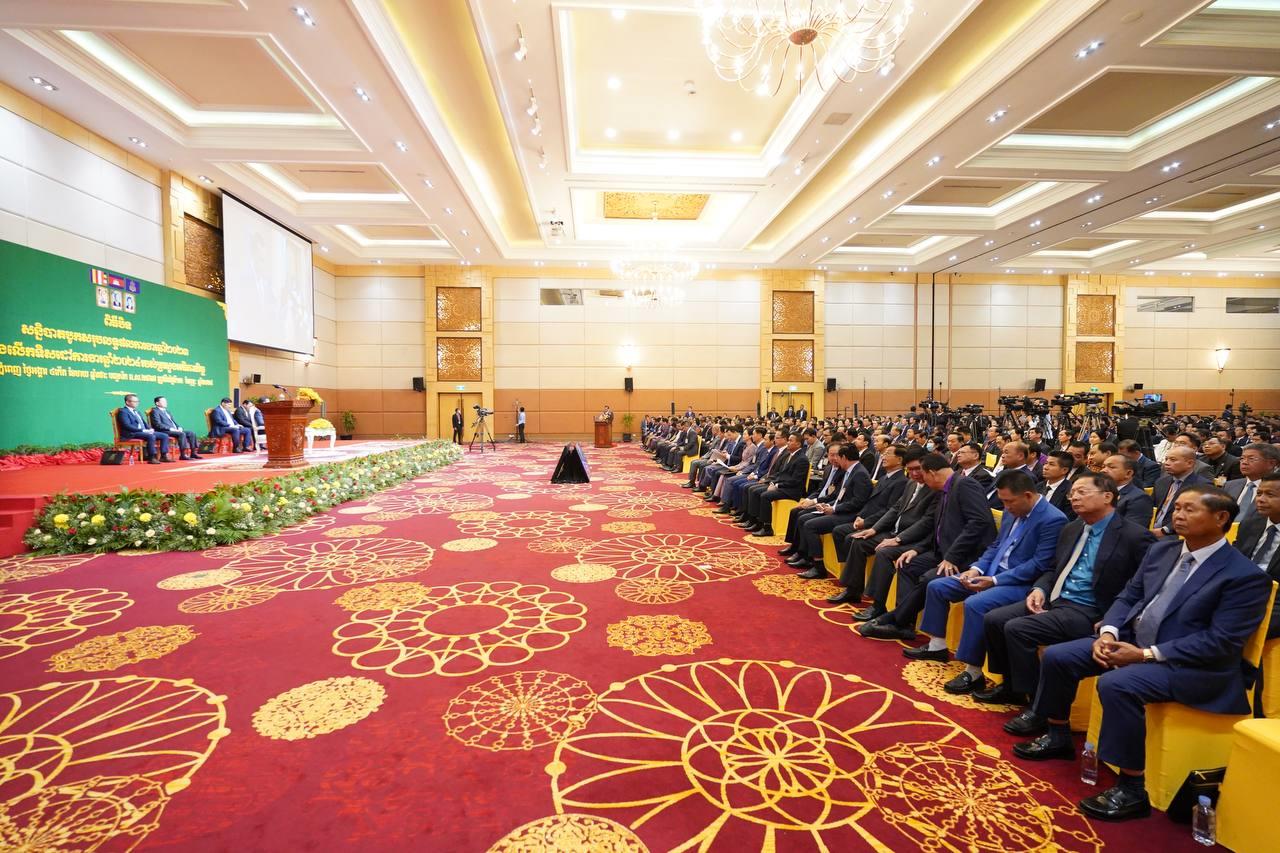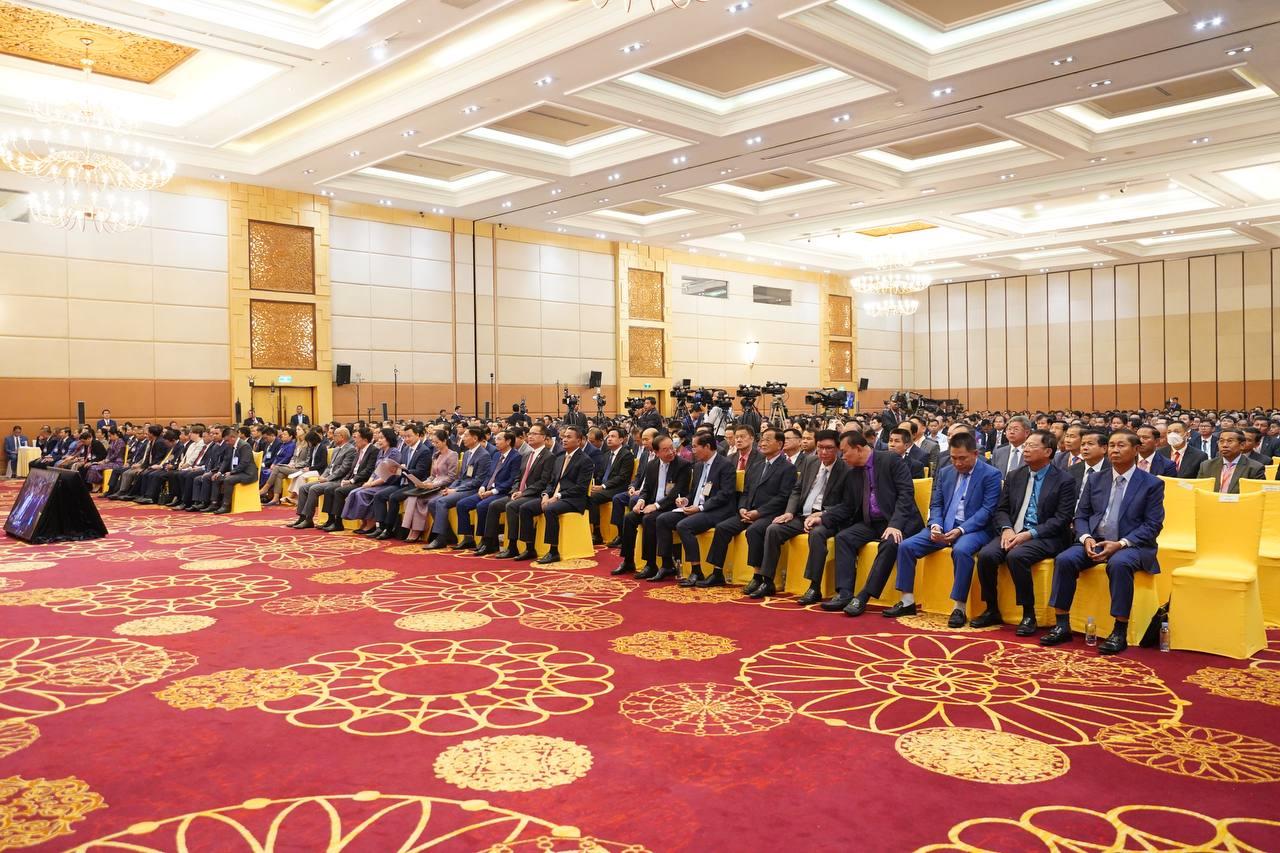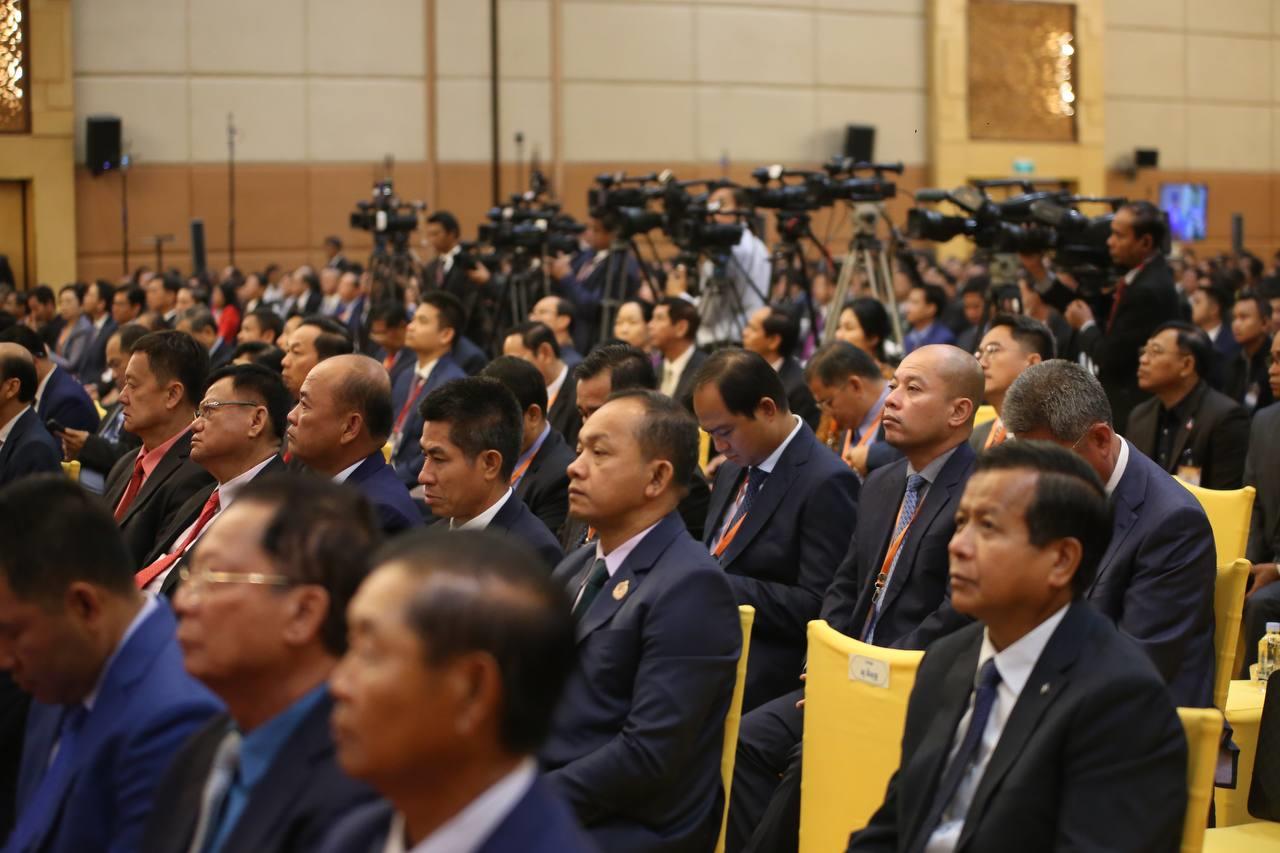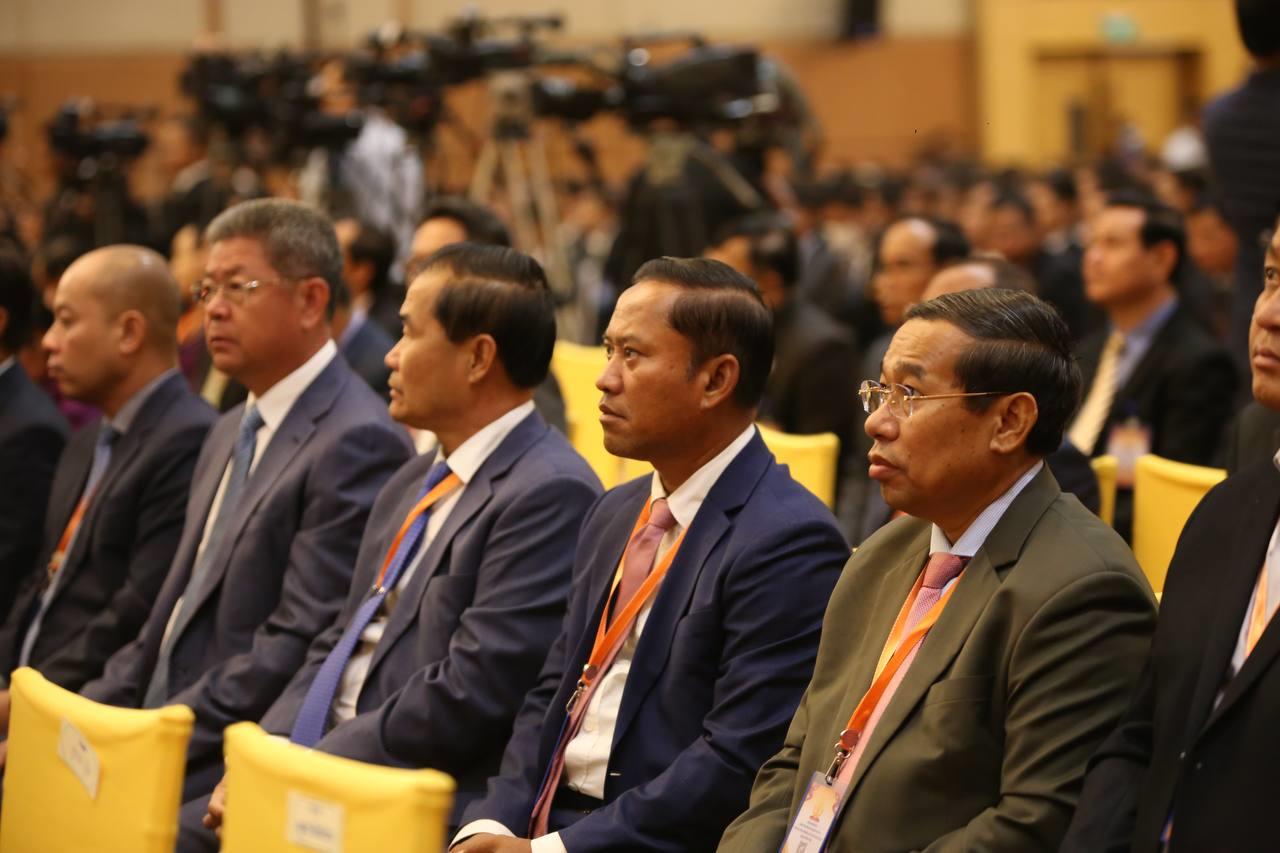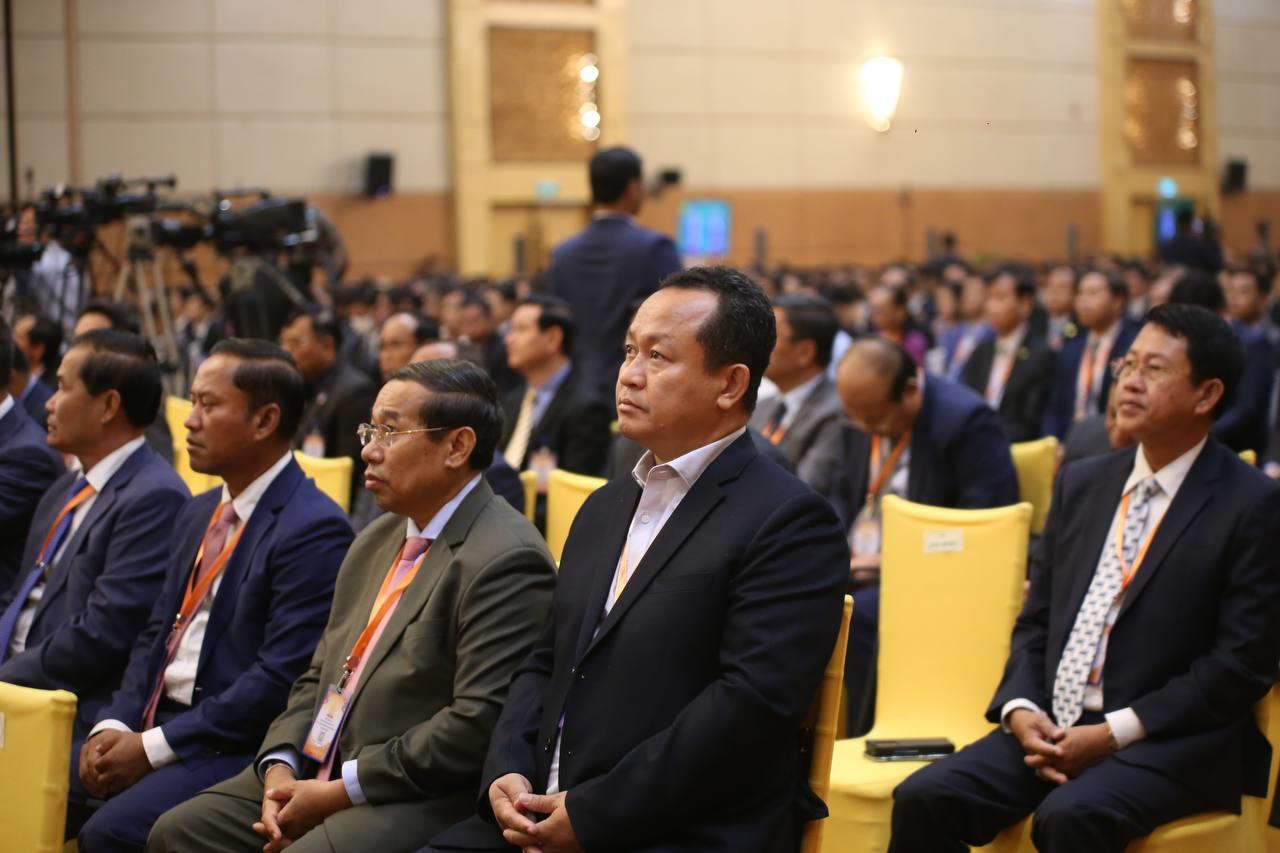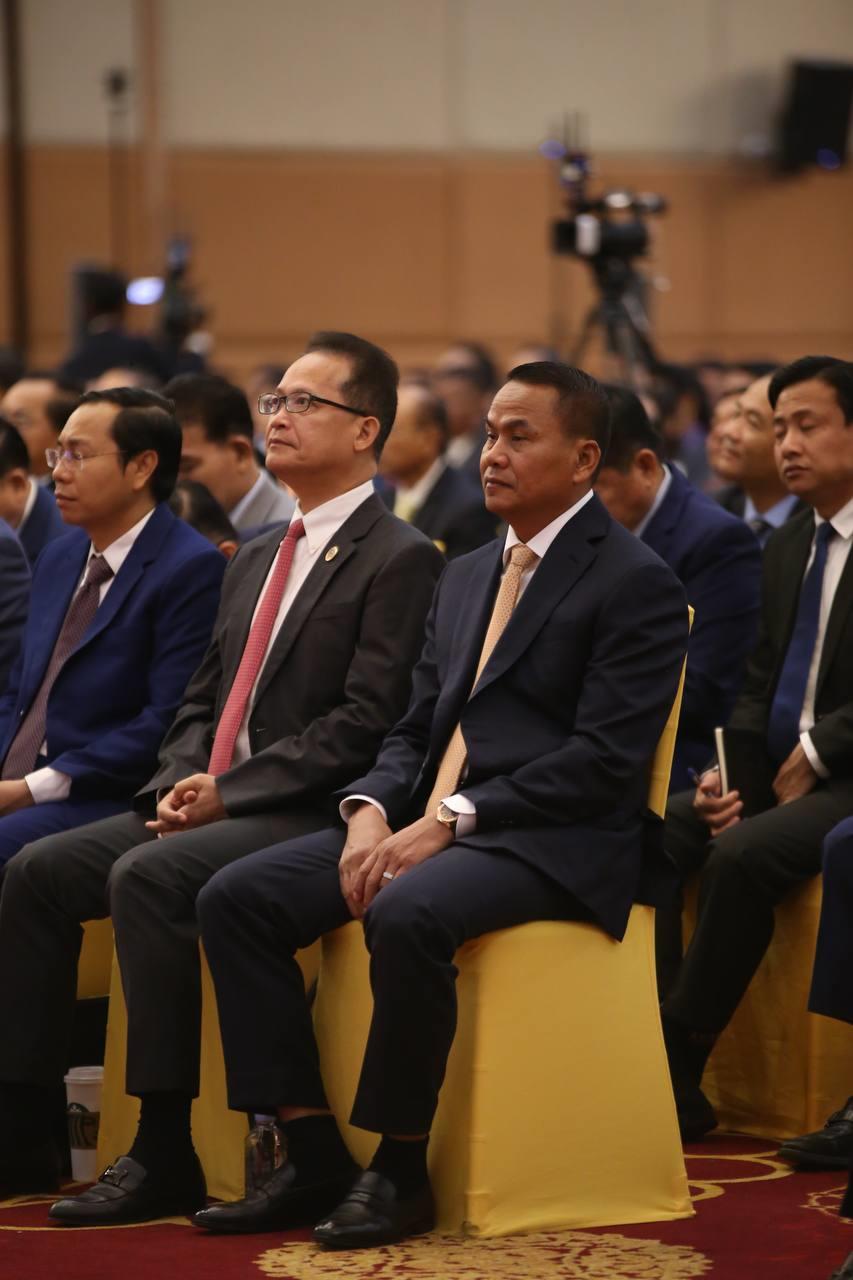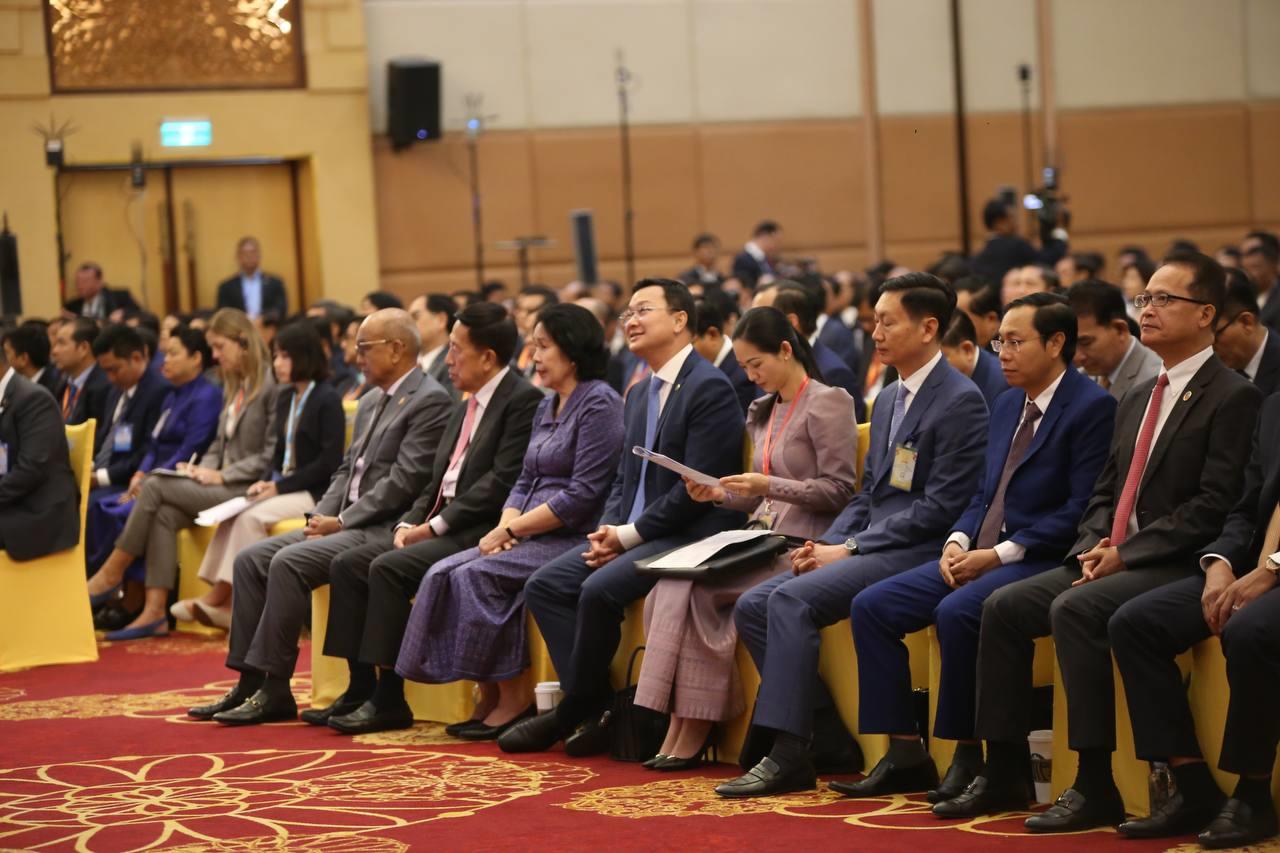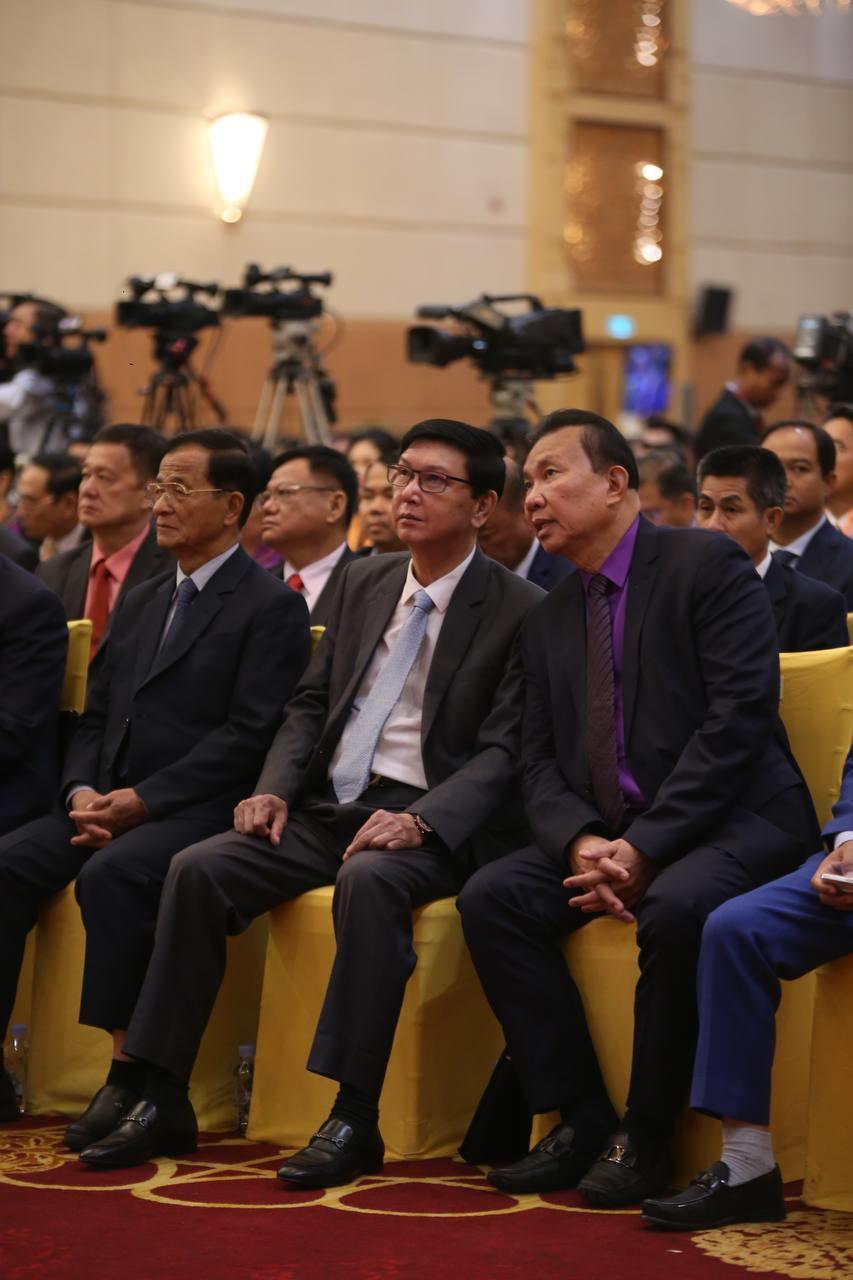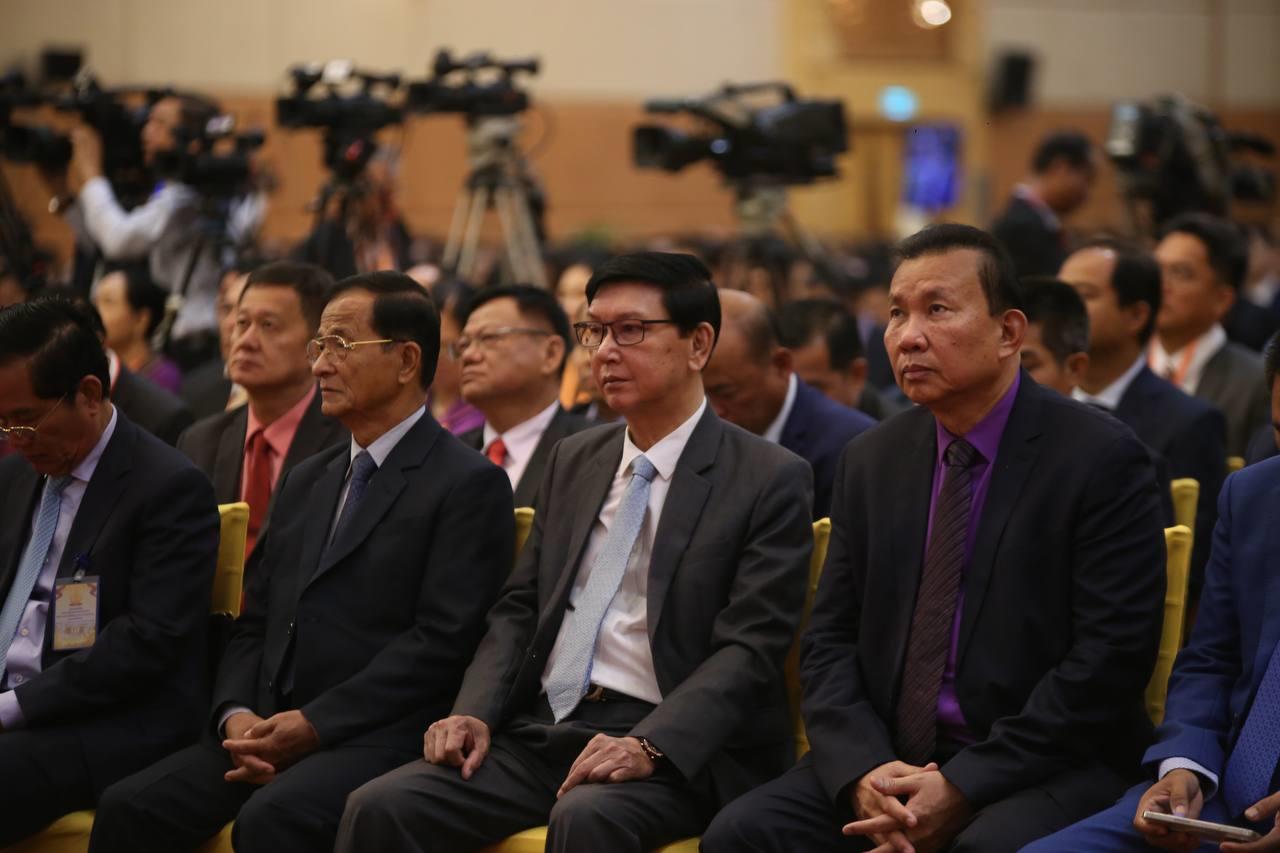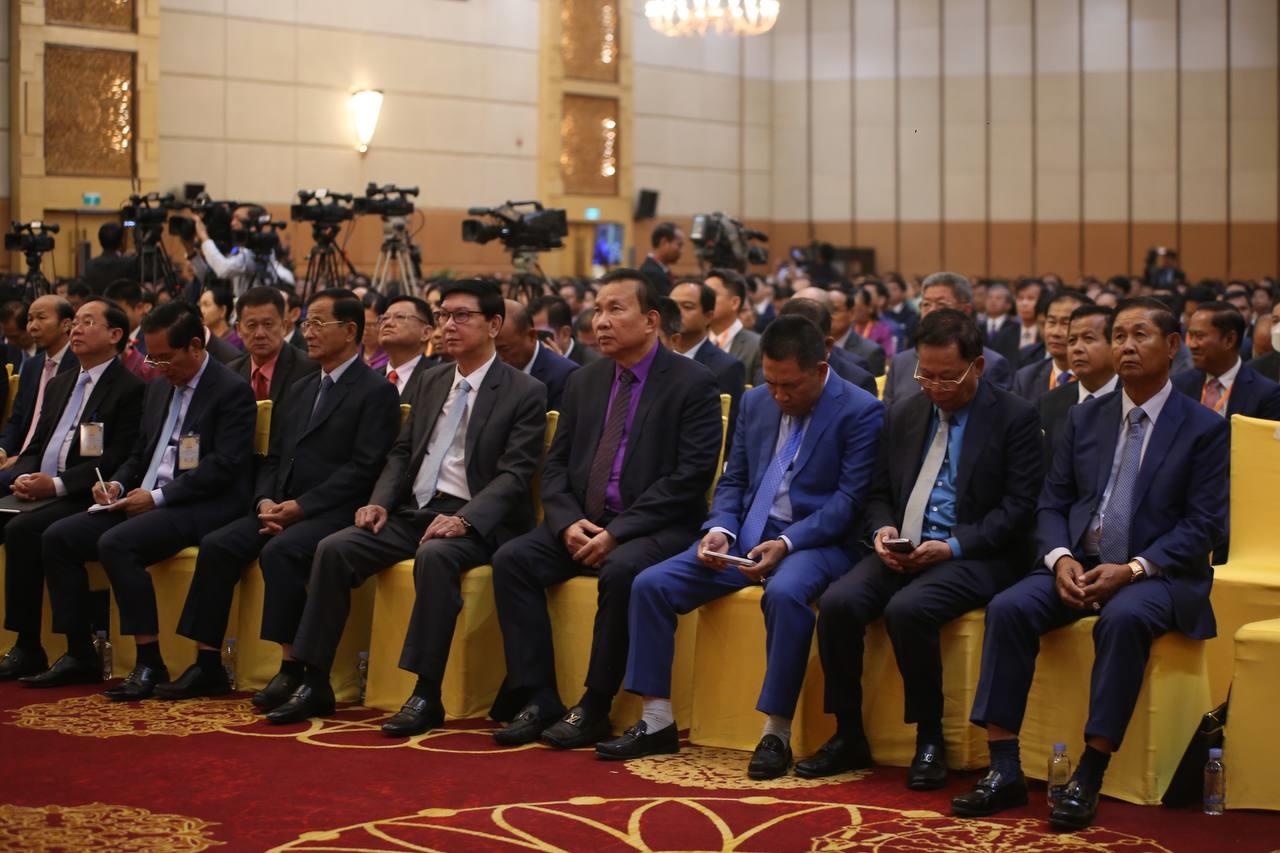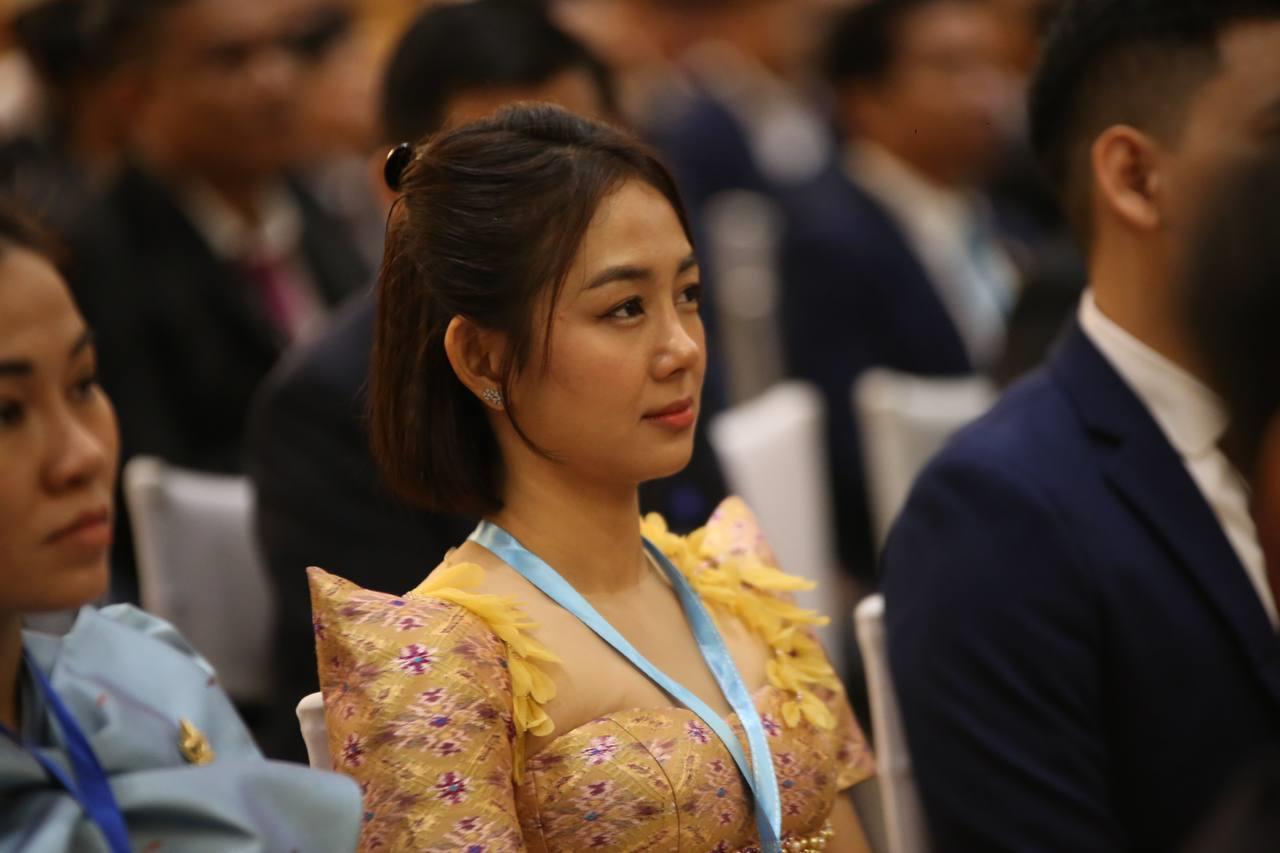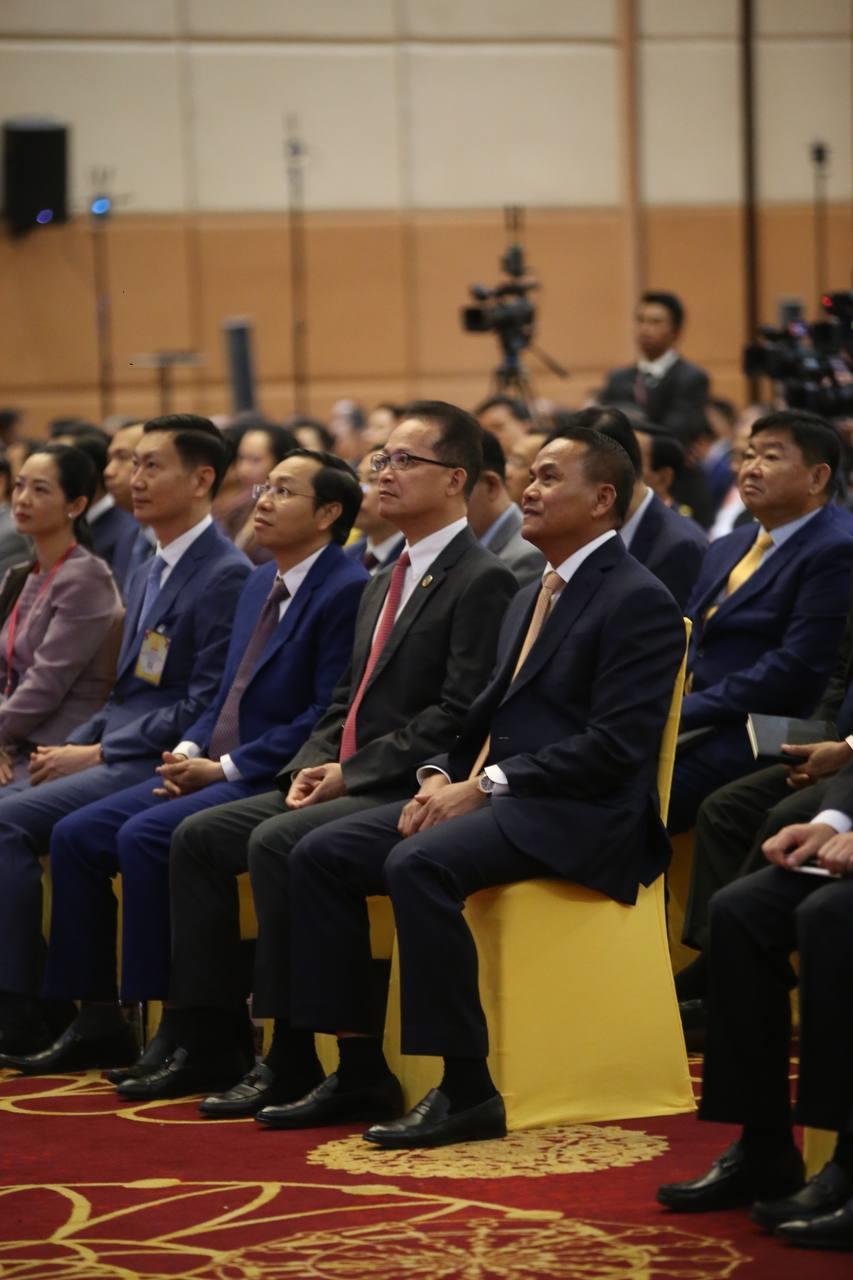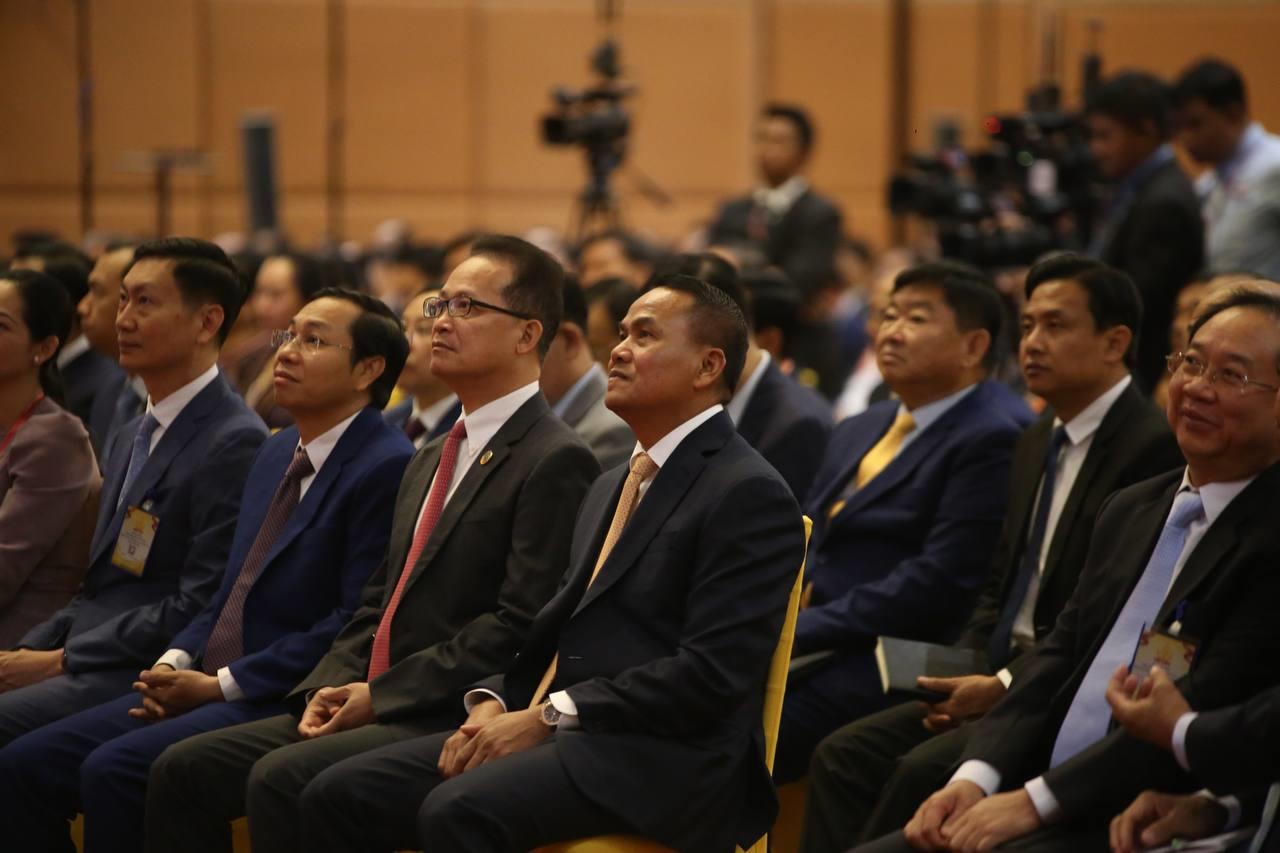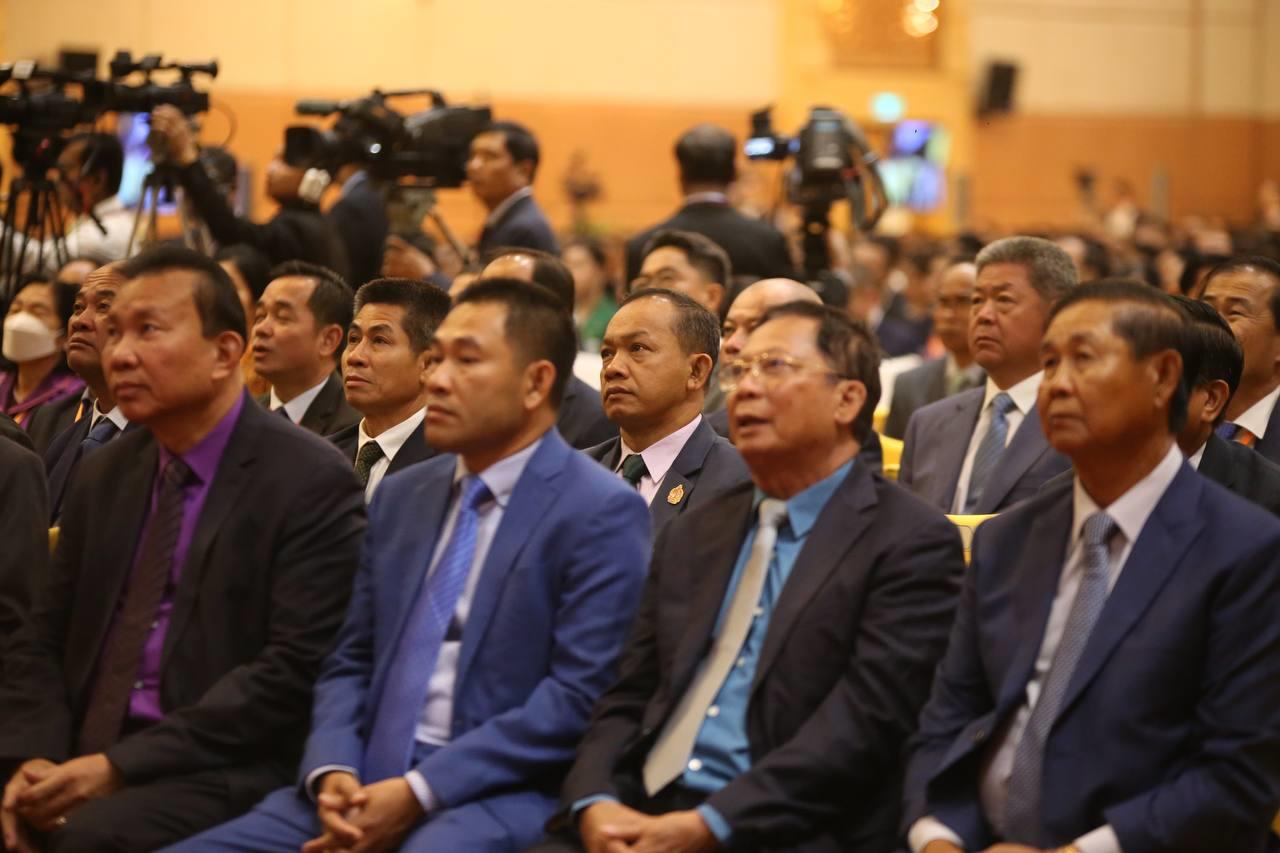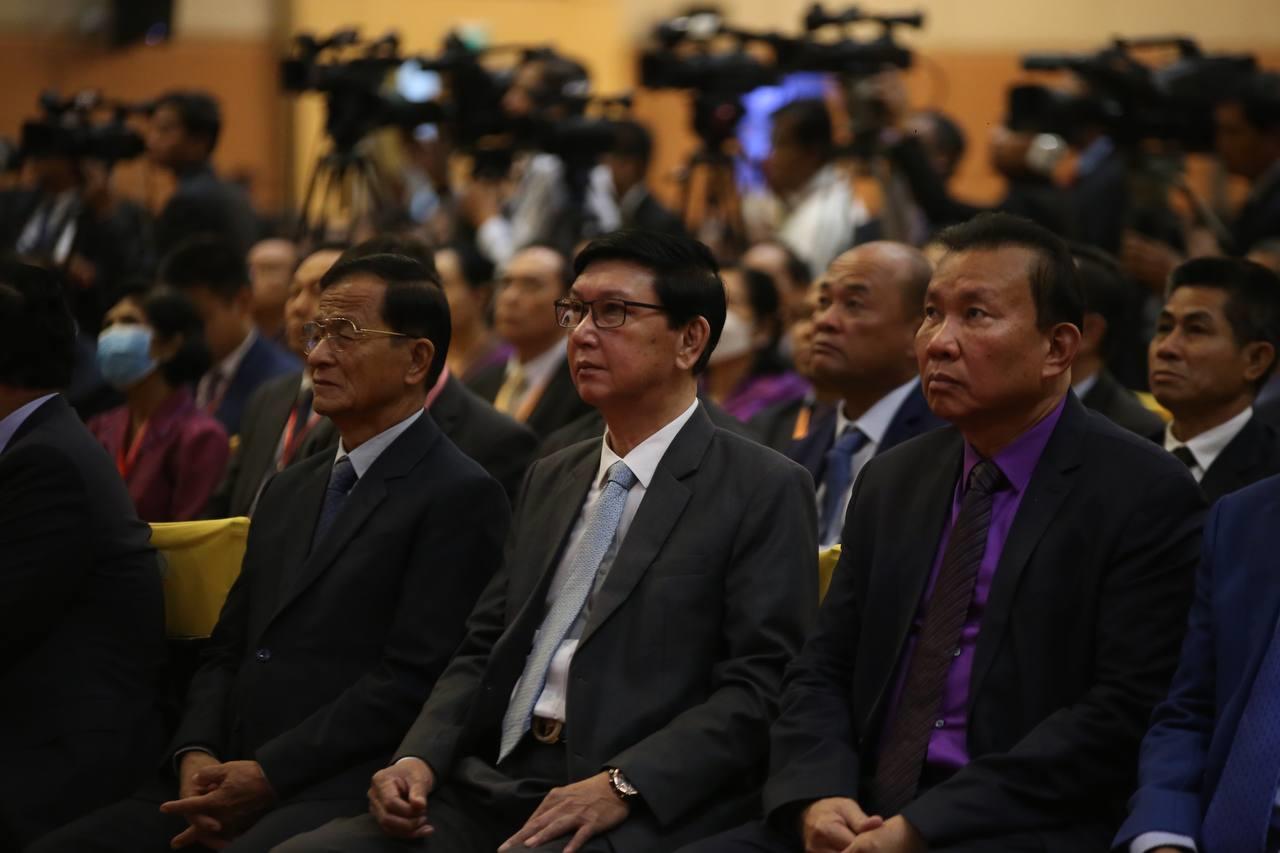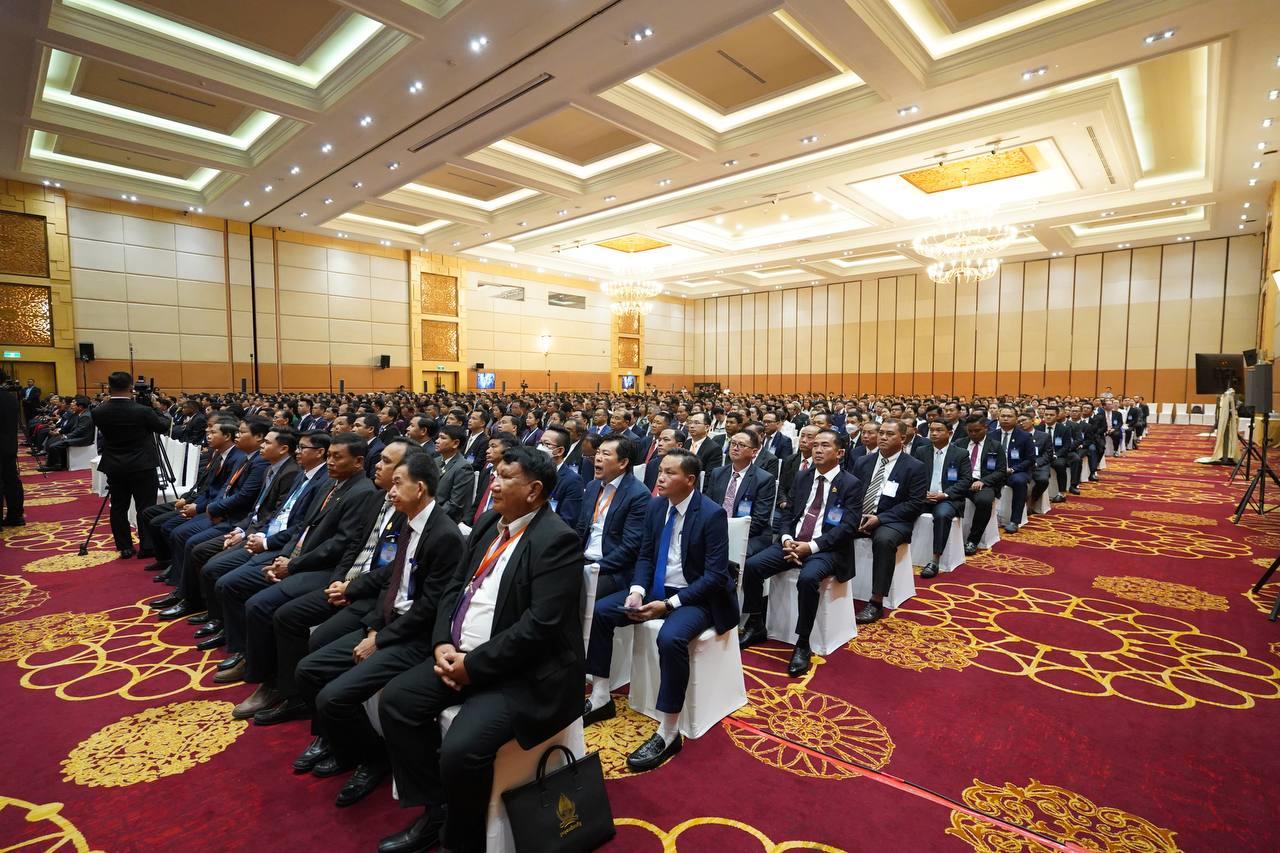Phnom Penh (FN), Feb. 13 – Cambodian Prime Minister Hun Manet provided seven recommendations to the Ministry of Inspection to strengthen inspections, contributing to the implementation of four approaches, speaking on Tuesday (Feb. 13) during the annual meeting of the Ministry of Inspection at Sokha Phnom Penh Hotel.
The renaming of the Ministry of National Assembly-Senate Relations and Inspection to the Ministry of Inspection aligns with the core objectives of the Pentagon Strategy-Phase I, which focus on reform, strengthening governance, and modernizing state institutions to achieve a highly capable, intelligent, and clean public administration. These goals are set by the Royal Government under the long-term and realistic vision of Samdech Thipadei Hun Manet.
Samdech Thipadei has set out seven recommendations to the Ministry of Inspection for further implementation as follow:
1. The Ministry of Inspection plays a pivotal role in aiding the Royal Government in implementing the Pentagon Strategy-Phase I, which aims to enhance governance and sanitation within the public sector. This involves strengthening the management and delivery mechanisms of public services, as well as providing incentives and enforcing strict legal measures to discipline and prosecute public officials who violate professional ethics or misuse their authority while carrying out their duties and responsibilities.
2. The Ministry of Inspection shall take the initiative and lead in establishing high-quality, effective inspection mechanisms, while ensuring the alignment of inspection functions across public administration. Additionally, the Ministry must focus on (1) Strengthening relationships and fostering good cooperation with inspection units within ministries and institutions through comprehensive guidance on inspection work, preparation of inspection procedures, and national inspection standards, along with facilitating extensive training in inspection skills to enhance efficiency and consistency in work performance; (2) Adhering to the hierarchy of inspection work, wherein the Ministry of Inspection conducts inspections at the Royal Government level, overseeing all areas within ministries, institutions, and sub-national administrations, while the General Inspectorate handles inspections within ministries and institutions under their respective jurisdictions; (3) Engaging in international cooperation with countries possessing oversight functions to promote human capital development, exchange of best practices, and mutual learning; (4) Continuing to widely disseminate the law to foster respect for and adherence to legal principles, reduce corruption and legal violations, promote social justice, and establish a culture of peace, non-violence, and the rule of law; and (5) Promoting the implementation of inspection for all, towards good governance, as a mission of the Ministry of Inspection and lower inspection units, facilitating thorough consideration through careful listening, observation, and accurate judgment.
3. The Ministry of Inspection must continue to promote and enhance various institutions, with a focus on: (1) Developing human capital by reinforcing officials' conscientiousness and professional ethics, as well as enhancing the competency of individuals; (2) Strengthening the comprehensive, fair, and non-discriminatory implementation of inspection roles, primarily based on the five approaches "self-reflection, showering, scrubbing, treatment, and surgery"; (3) Enhancing mechanisms for monitoring the implementation of laws, policies, and regulations issued by the Royal Government to assess policy implementation, progress, achievements, and ensure efficient and professional services to the people; and (4) Establishing an accessible complaint reception system by establishing complaint offices at the Capital-Provincial Inspection Department.
4. In the spirit of "Inspection for All, Towards Good Governance," I urge all ministries, institutions, sub-national administrations, and public entities to collaborate effectively in this crucial inspection work. Aligned with Samdech Techo's motto "Inspection is the eyes, ears of the higher level and a close friend of the lower level," this slogan should serve as the mission of both the Ministry of Inspection and lower inspection units, aiding leadership at all levels in observation, attentive listening, and accurate judgment for informed decision-making.
5. The Ministry of Inspection is tasked with preparing laws and other legal documents to adequately serve the inspection sector, with particular emphasis on expediting the drafting of laws and sub-decrees regarding the organization and functioning of the Ministry of Inspection, highlighting the core work of renaming the Ministry, and drafting the inspection law promptly. Simultaneously, the Ministry must explore the possibility of amending the Laws on Lawsuits and Defamation in accordance with the evolving social situation. I urge the Ministry of Justice, the Legal Council of the Office of the Council of Ministers, and relevant ministries and institutions to cooperate in preparing the draft law and legal documents for the Ministry of Inspection expeditiously, driven by our shared interest in meeting the needs of society.
6. The Ministry of Inspection, along with the National Institute of Inspection as its supporting body, must enhance the capacity development of inspectors by meticulously selecting professionals and assembling experts with distinct theoretical and practical experience. This effort is particularly focused on advancing the research capabilities of trainees to ensure their scientific rigor and applicability within the context of national social development. Concurrently, the National Inspection Institute must diligently cultivate comprehensive competencies in each specialization according to actual requirements, enabling trainees to possess the necessary skills and expertise to fulfill the essential needs of the nation.
7. The Ministry of Inspection must collaborate with the Ministry of Posts and Telecommunications to enhance the capacity of its civil servants, particularly digital literacy inspectors, in order to advance the digital transformation of inspections and institutional modernization. By conducting inspections using digital technology, efficiency can be increased, implementation time and costs reduced, and contributions made towards the realization of the Cambodia Digital Government Policy 2022-2035 and the Cambodia Digital Economy and Society Policy Framework 2021-2035.
=FRESH NEWS
